Scotland Roadtrip
Part I: Aberdeen, British Royalty, and Expensive Castles
Now I Get Why They Invented Golf
We took a two week roadtrip through Scotland. We got soaked and the food sucked, but the nature was awesome. 10/10.
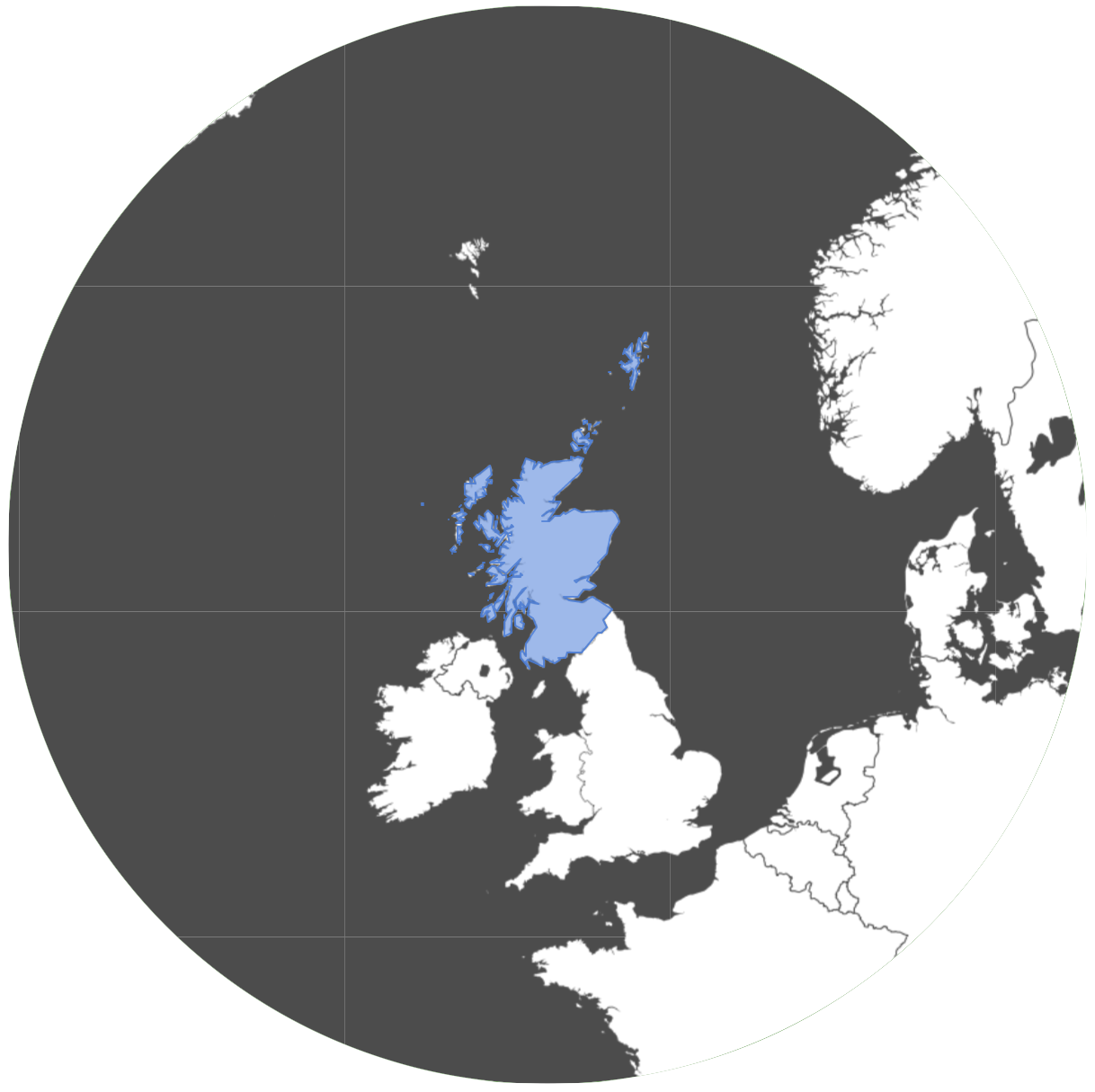
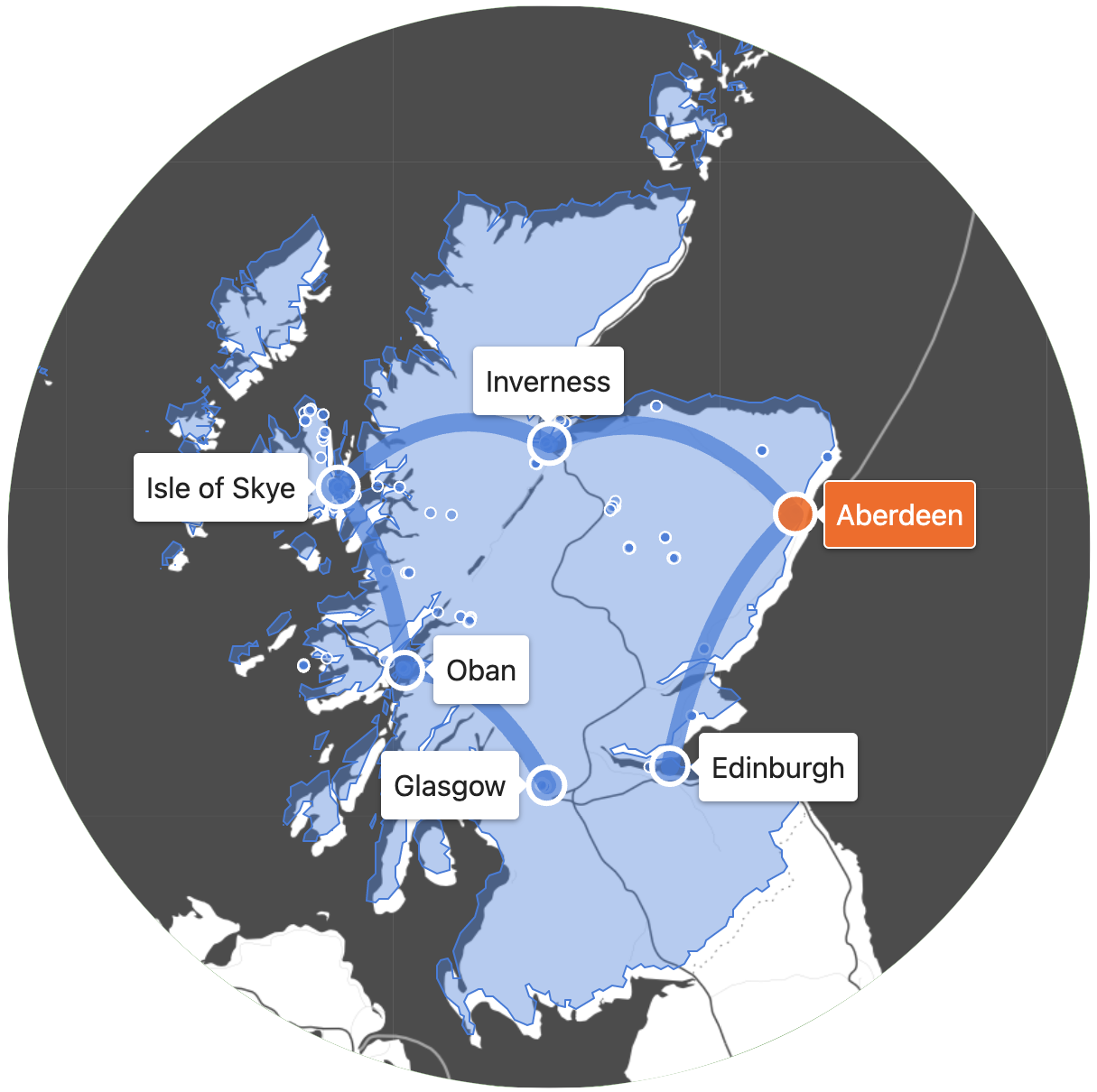
Edinburgh
We left Edinburgh after two lovely weeks there.
However, there is one last thing I forgot to complain about in Edinburgh: the crosswalks.
Nearly every crosswalk is an all-way walk. All-way walks are cool because it seems less likely a car will plow you down. Every time I’ve been almost run over—and a couple people I know who have been car bonked—it’s been at a crosswalk with a car turning right and its driver looking left.
So, in theory, good choice. But the problem is that the timing on these Edinburgh crosswalks is unbelievably, excruciatingly, comically, is-it-actually-broken? long.
As a result, everyone just jaywalks constantly, people honk threateningly at jaywalking pedestrians, and the crosswalks turn out to just be stupid decorations.
Left Side, Left-Hand Stick Shift
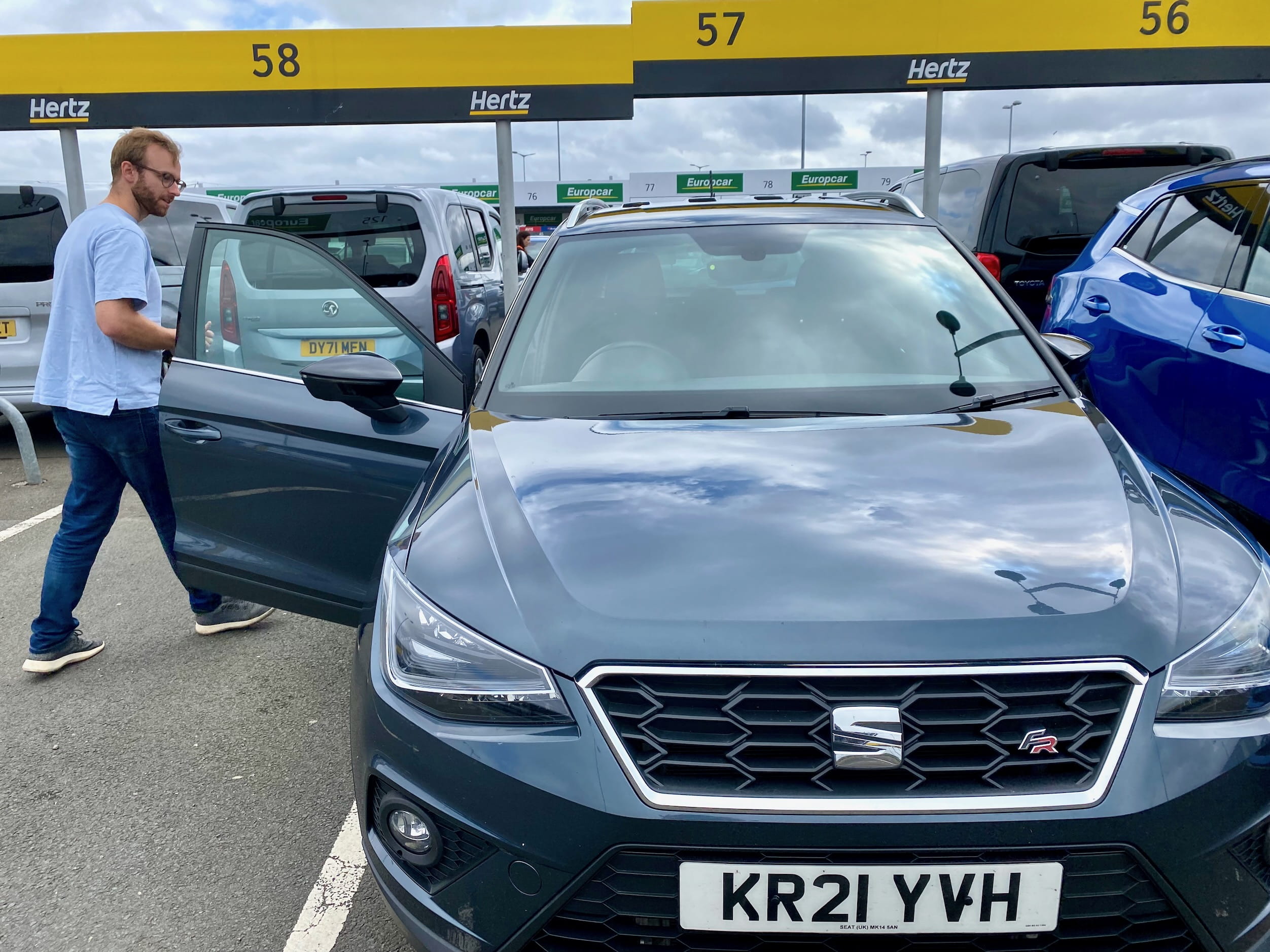
Thank god I’d at least spent ten years driving a manual in the USA. (Rest in peace Kermit, you stupid beeping wonderful '97 Subaru.) Driving here involved both switching to the left side of the road, and shifting gears with my left hand. Luckily, they didn’t also swap the foot pedals.
I spent the first couple days so terrified of oncoming traffic that I’d frequently run into the curb. What kept me going was faith that, after a few white-knuckled hauls, my brain would adjust, and operating a private gasoline metal death box would again become blissfully automatic.
Fortunately, this turned out to be true. Eventually we’d be blasting around windy one-lane dirt roads no problem.
Unfortunately, we wouldn’t escape the two weeks unscathed. More on this later.
The one piece of advice I’d give if you do come here and drive is to briefly read about two things:
-
The highway letter system (M, A, B, C), which gives you a hint about the speed limit. We found almost no speed limits posted anywhere in the country (!)
-
Roundabout rules. They are huge and everywhere and the rules with multiple lanes, where and when you can enter and exit depending on your goal, is not intuitive for someone who usually sees them as “drive in a circle a little lol.” This took a lot of practice and some honking reminders by locals for me to get right.
On the Road
Our first leg was from Edinburgh to Aberdeen.
The whole landscape felt pleasantly organized. Each parcel of land accounted for, all green pastures so kempt they looked nearly mowed (hence golf’s country of origin suddenly making sense), tasteful bits of trees spouting.
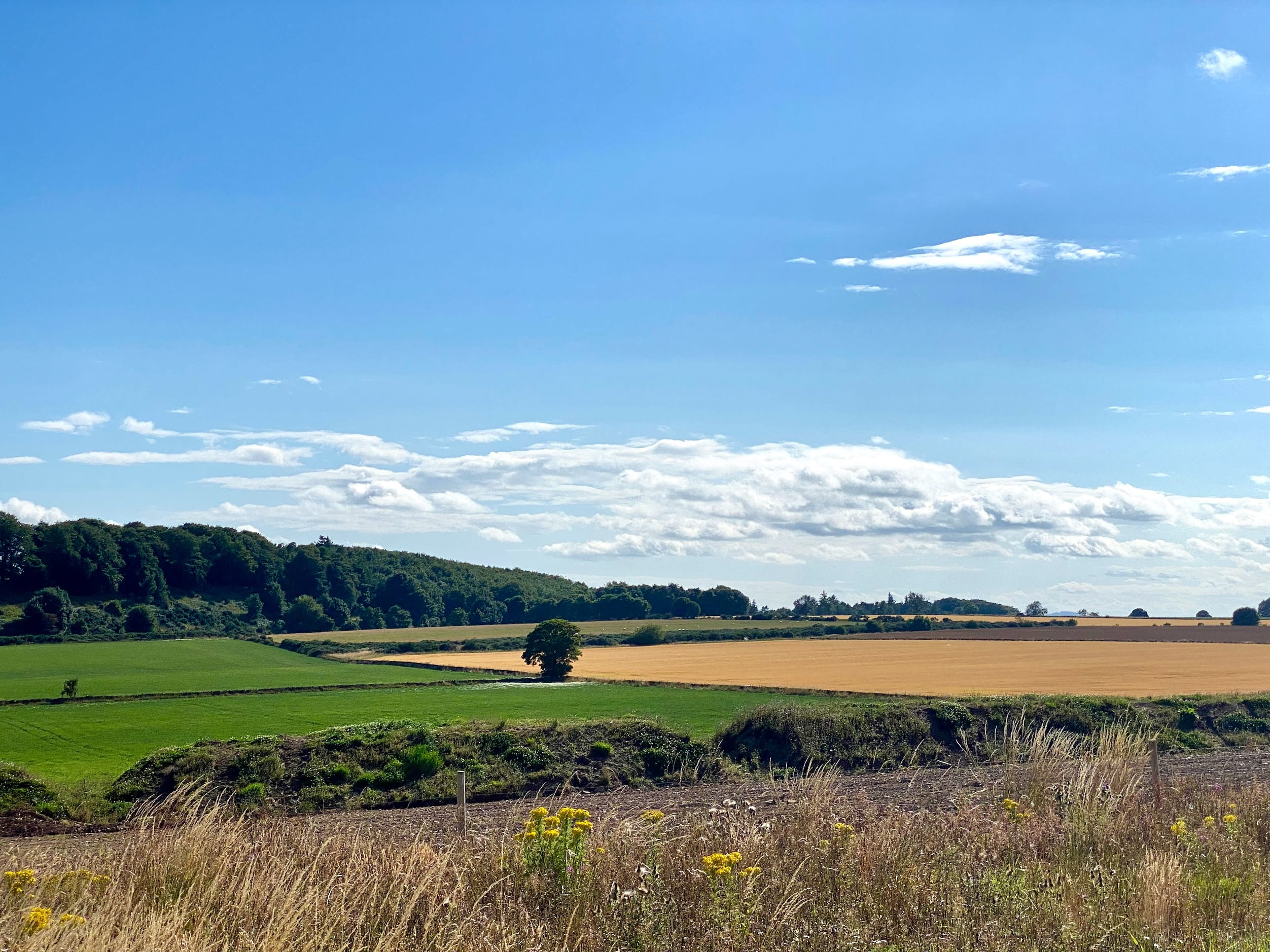
The one compliment I can give about Scottish cuisine with absolutely no reservations is that their fish and chips are incredible.
The breading is the opposite of Southern (USA) style fried chicken. It’s shatteringly light and crispy. The tartar sauce doesn’t scream at you the way it tends to for Seattle’s fried seafood, and the garlic mayo offers a welcome dipping contrast.
Reading Google Maps reviews for fish & chips places is a special pastime because everyone is convinced their local joint makes the best in the entire country.
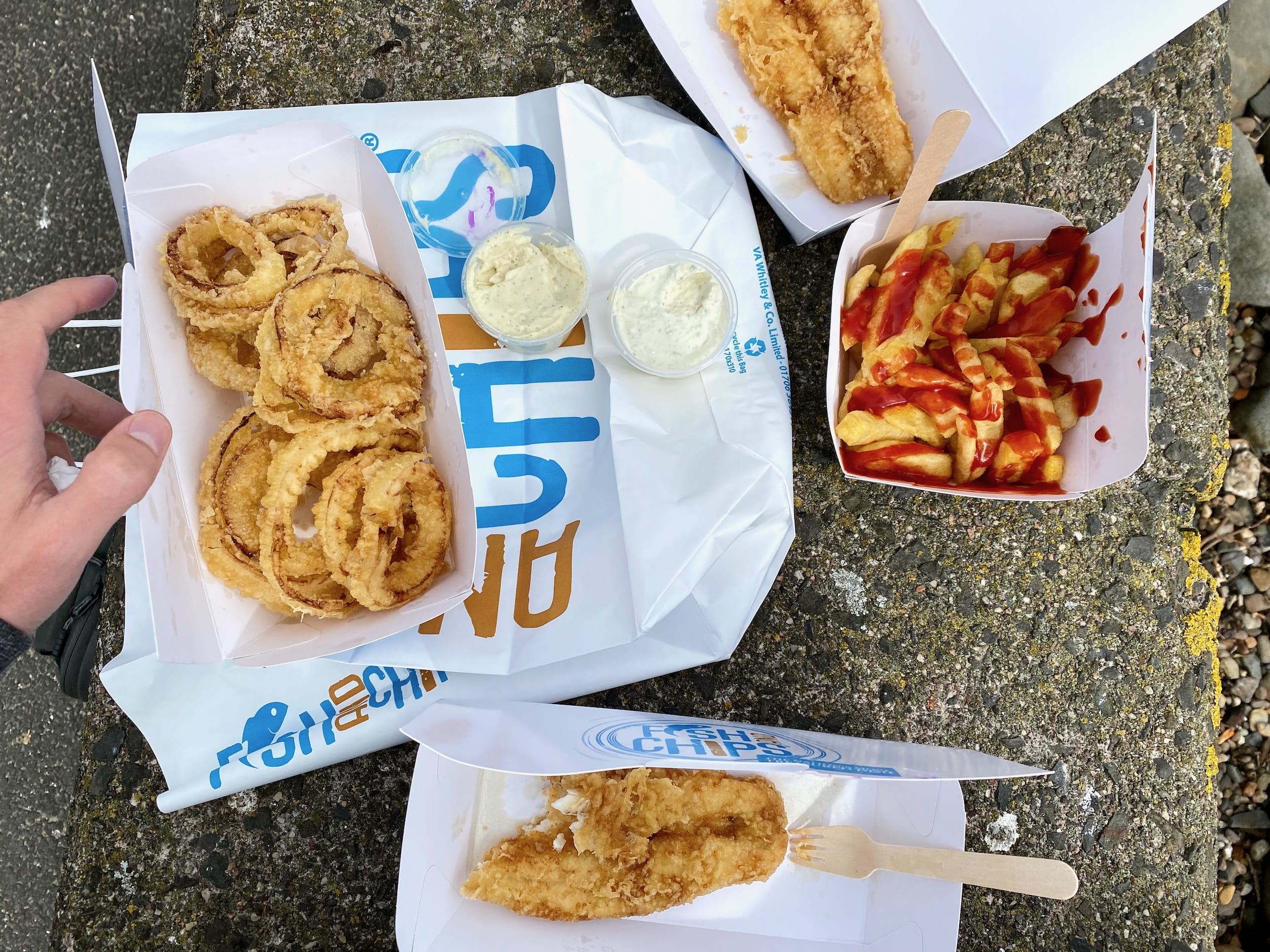
Not wild about the pre-drenching of fries in ketchup, but appreciate the tiny forks provided for stabbing them.
Rocky coast pleasantly familiar to Pacific Northwest (PNW).
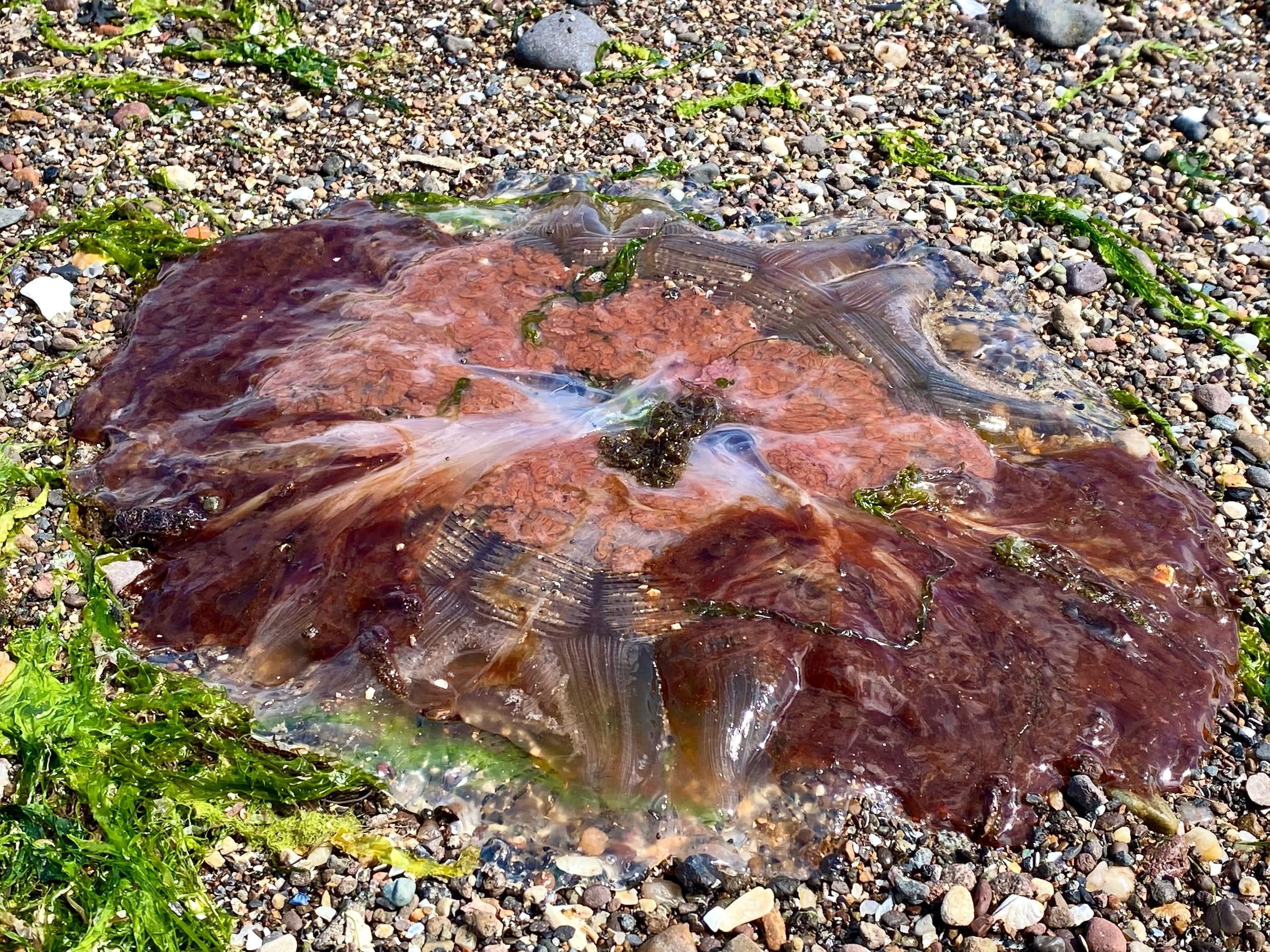
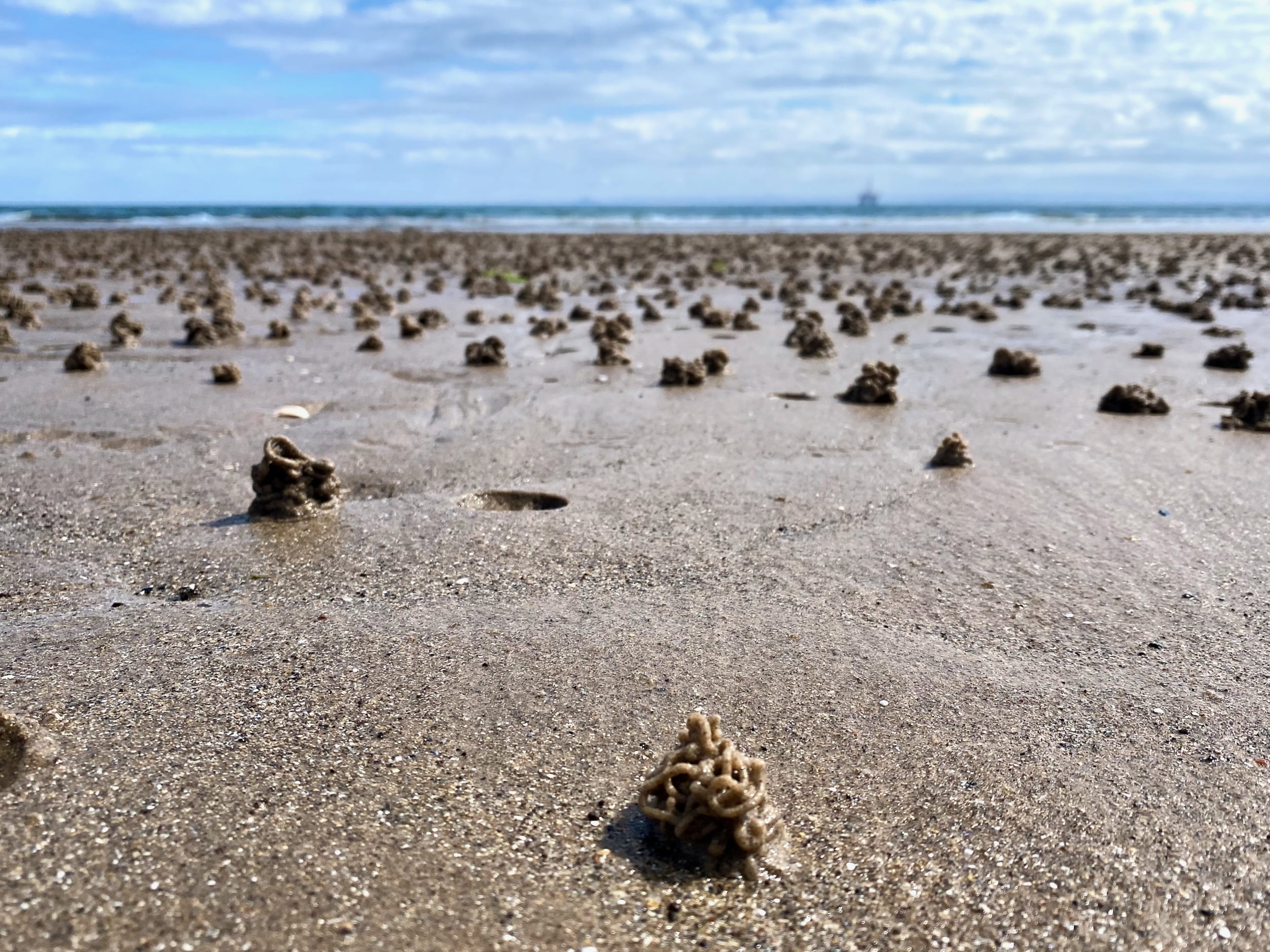
My mom asked her Seattle Aquarium friends about these nice swirls, kind of sand-based Mont Blancs, and it turns out they are piles of worm poop.
Aberdeen
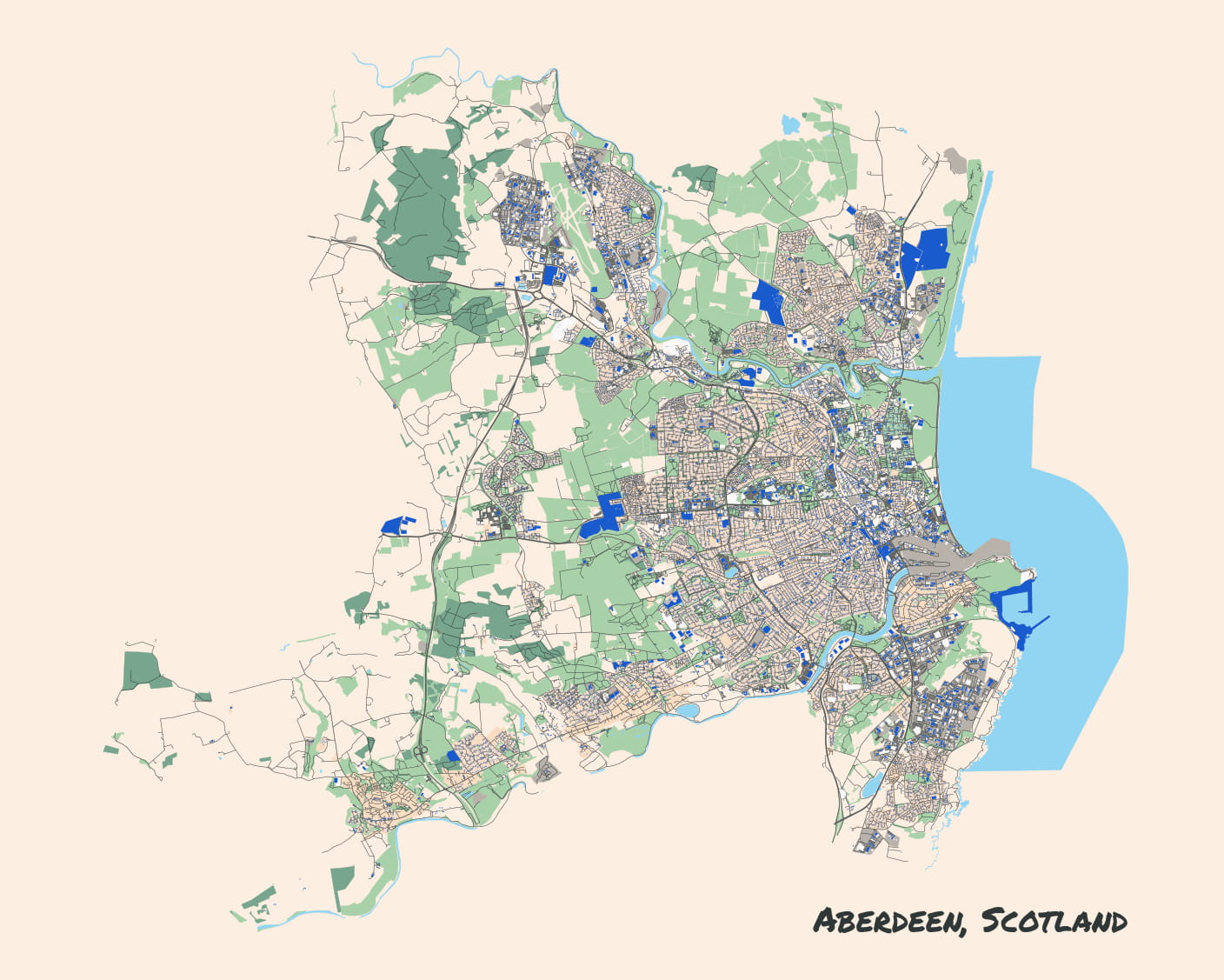
Nirvana main guy Kurt Cobain was from Aberdeen, WA, USA. My friend Callan’s dad grew up there and went to the same high school. Apparently Kurt was an unpleasant menace, but I can’t blame him too much given Wikipedia’s account of his childhood. Good angst brewing for grunge anyway.
If you’ve been to the PNW Aberdeen, then you’ll be pleased to know that Aberdeen, Scotland, UK is nothing like it.
This Aberdeen has a district-dependant mixture of rock and concrete housing, brutalist and gothic university behemoths, sprawling parks with flower arrangements manicured to look like the tops of cakes, and some ancient stuff in-between.
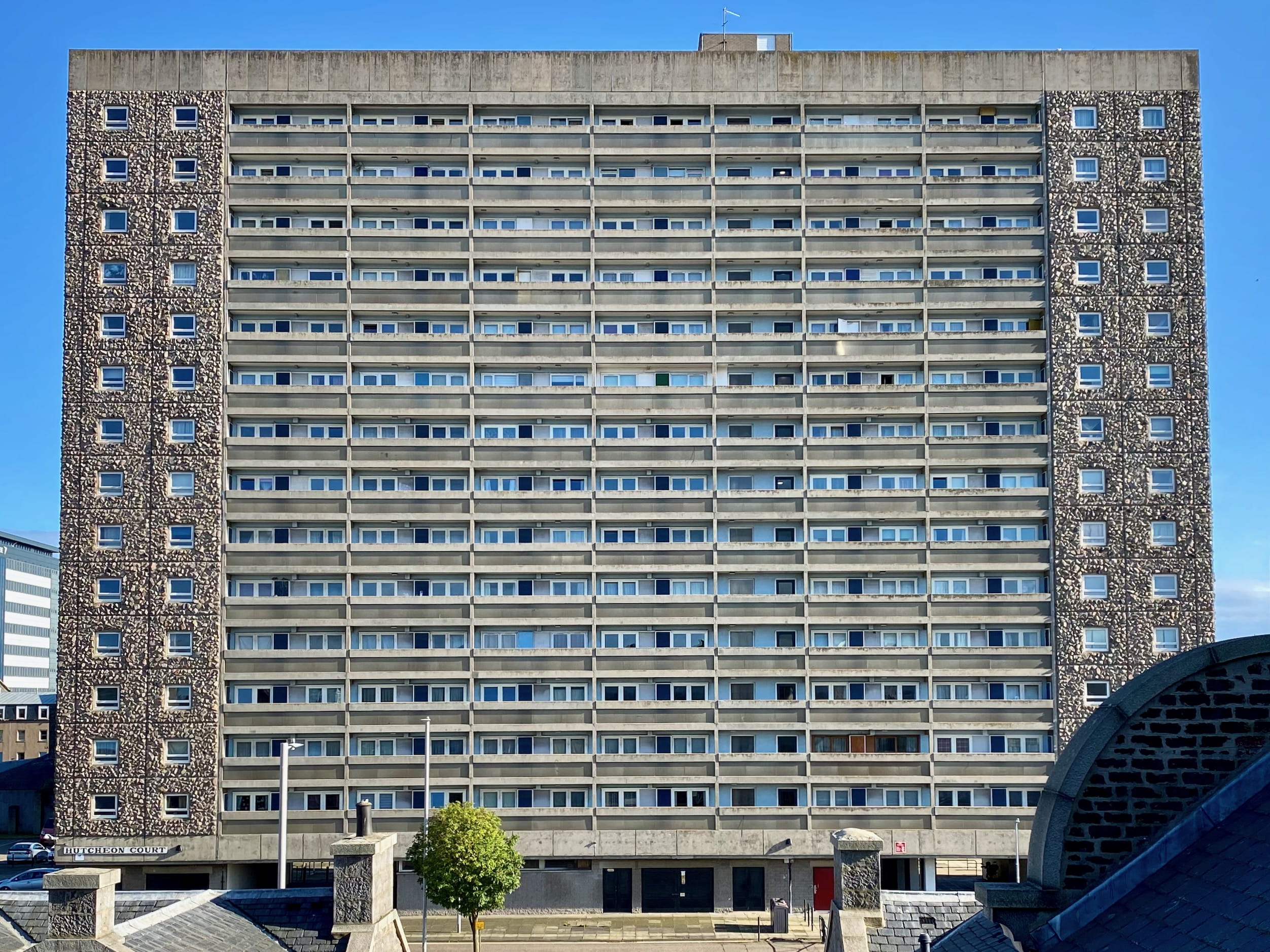
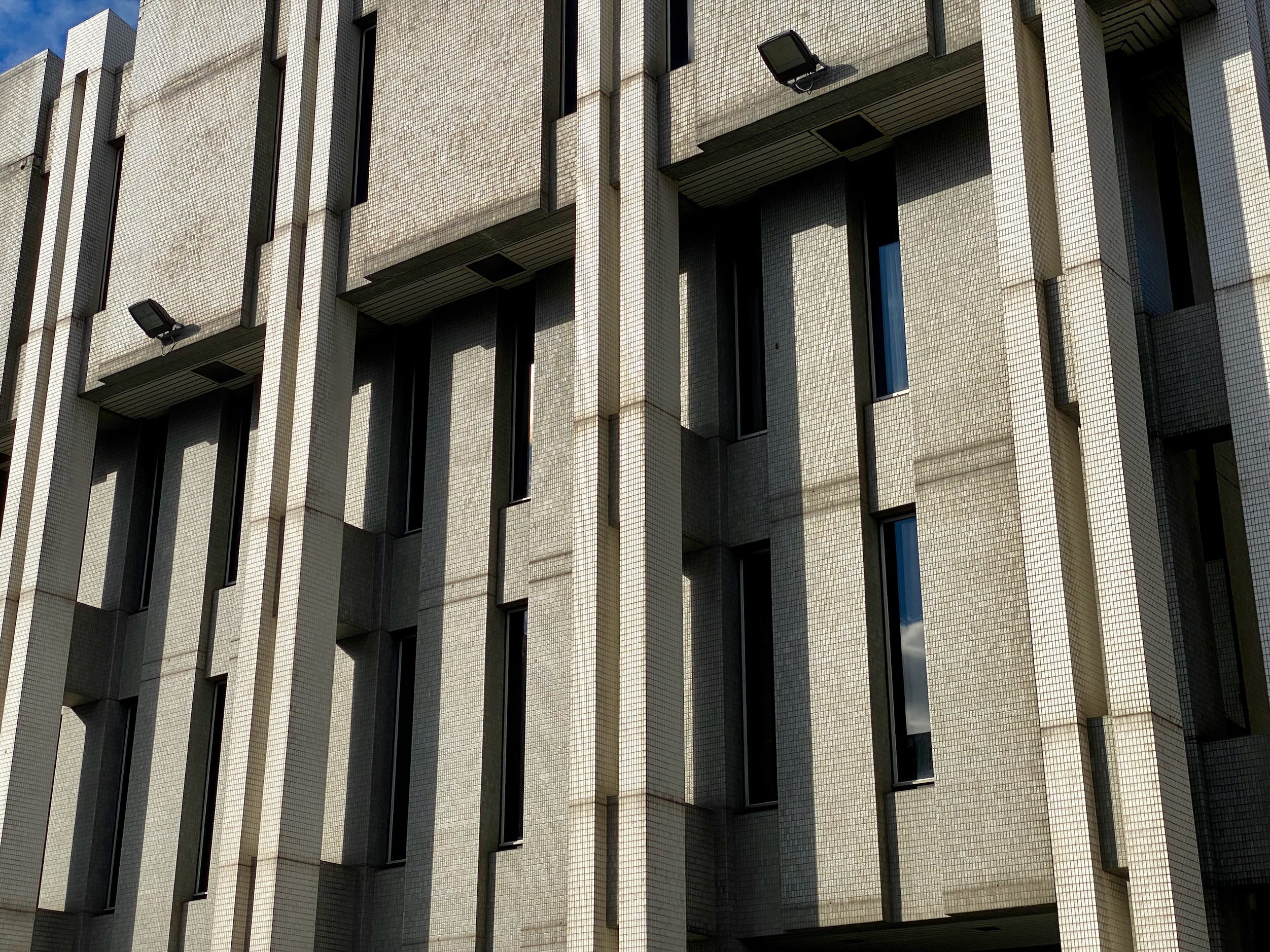
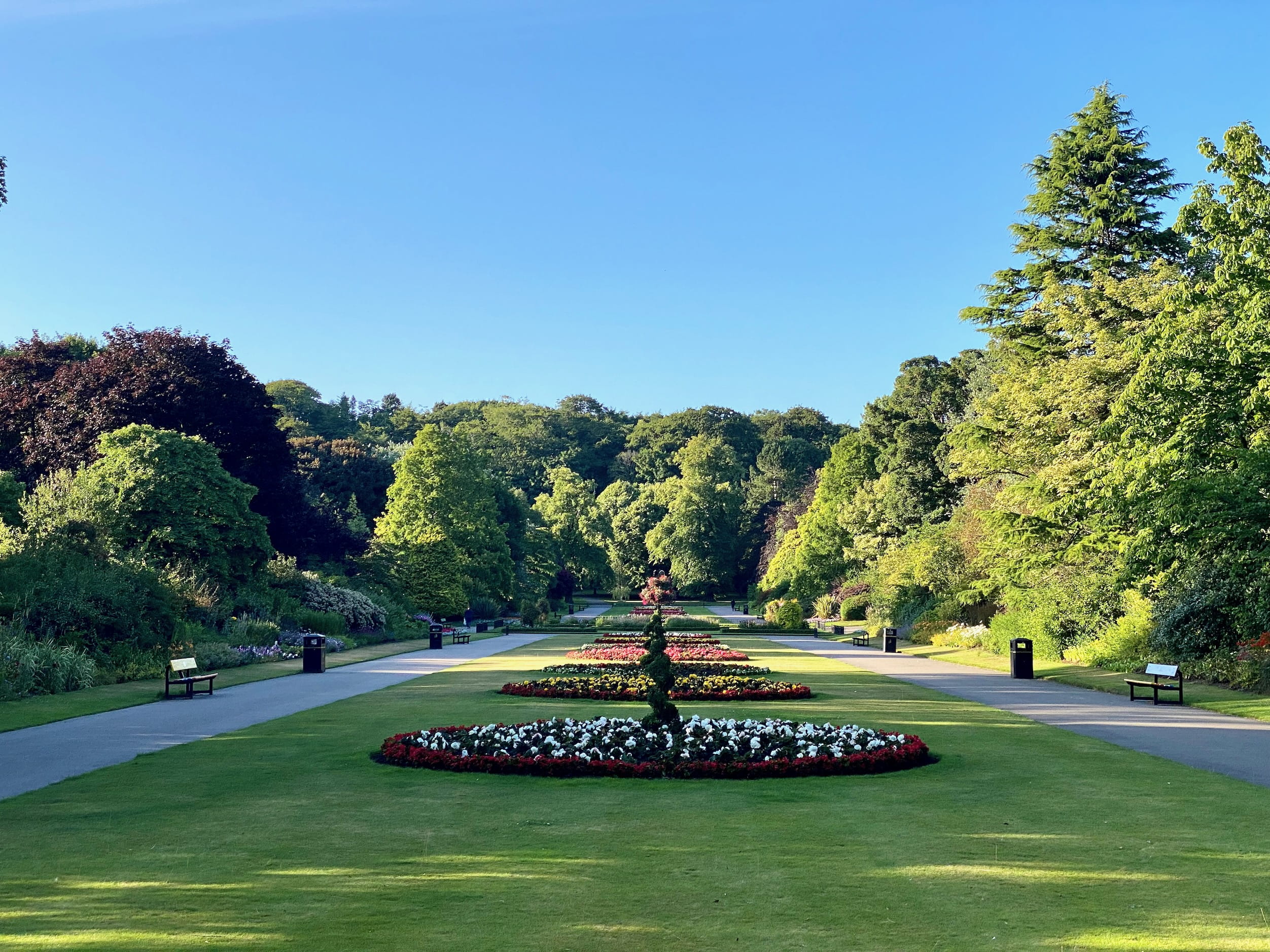

We started wandering the outskirts of town, which has the sleepy King’s College. Nestled among cottages, the campus was green and quiet and somehow felt very foreign in the specific way a preserved old place can. Streets were barren. We spotted only the occasional Chinese roughly-twenty-year-old wandering with a backpack. Feeling out of place myself in a tiny corner of town gave me a pang of empathy for someone moving from one of China’s many million+ population cities to a college town across the globe to study. I understood, freshly, why international students stick together.
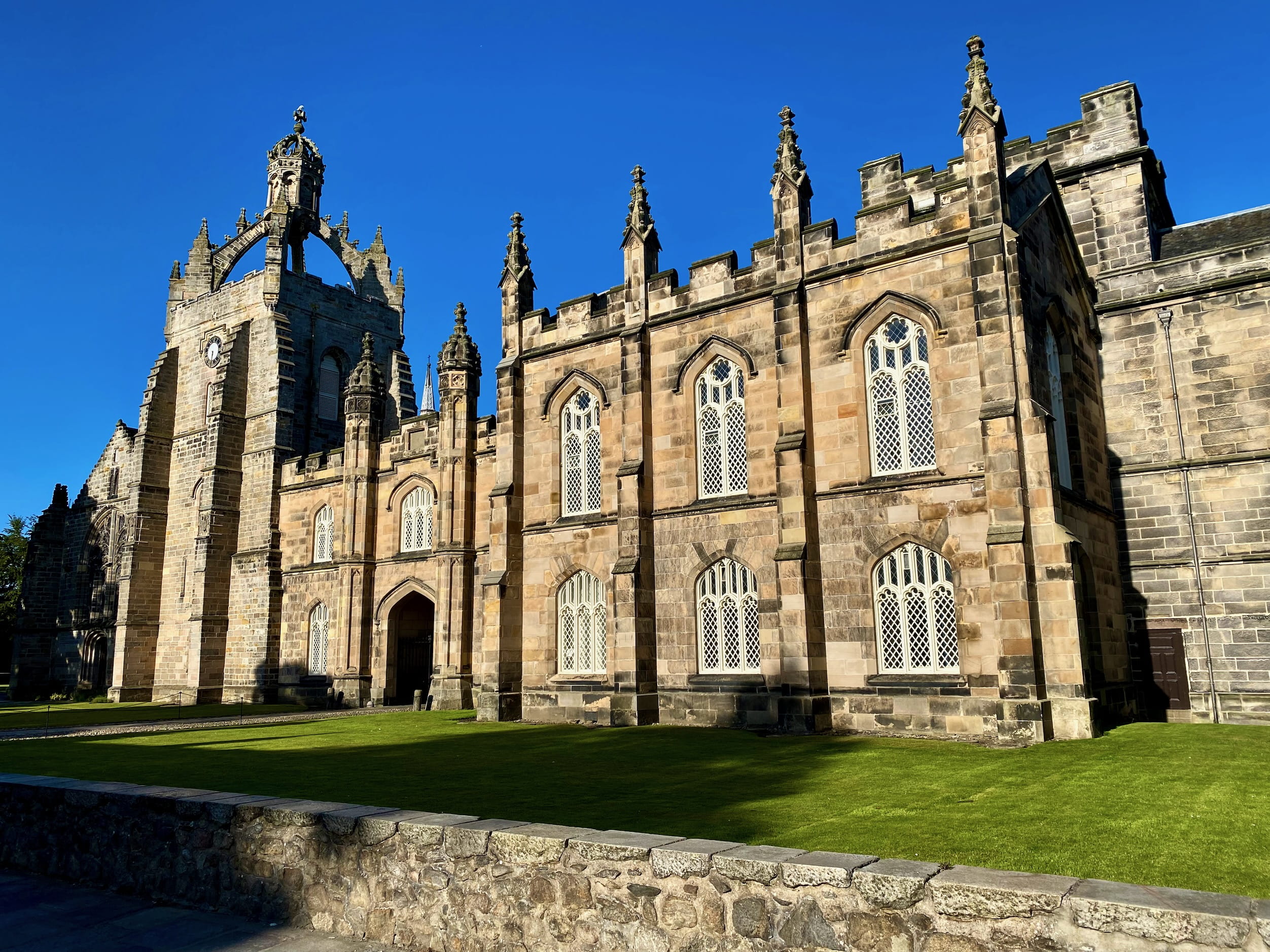
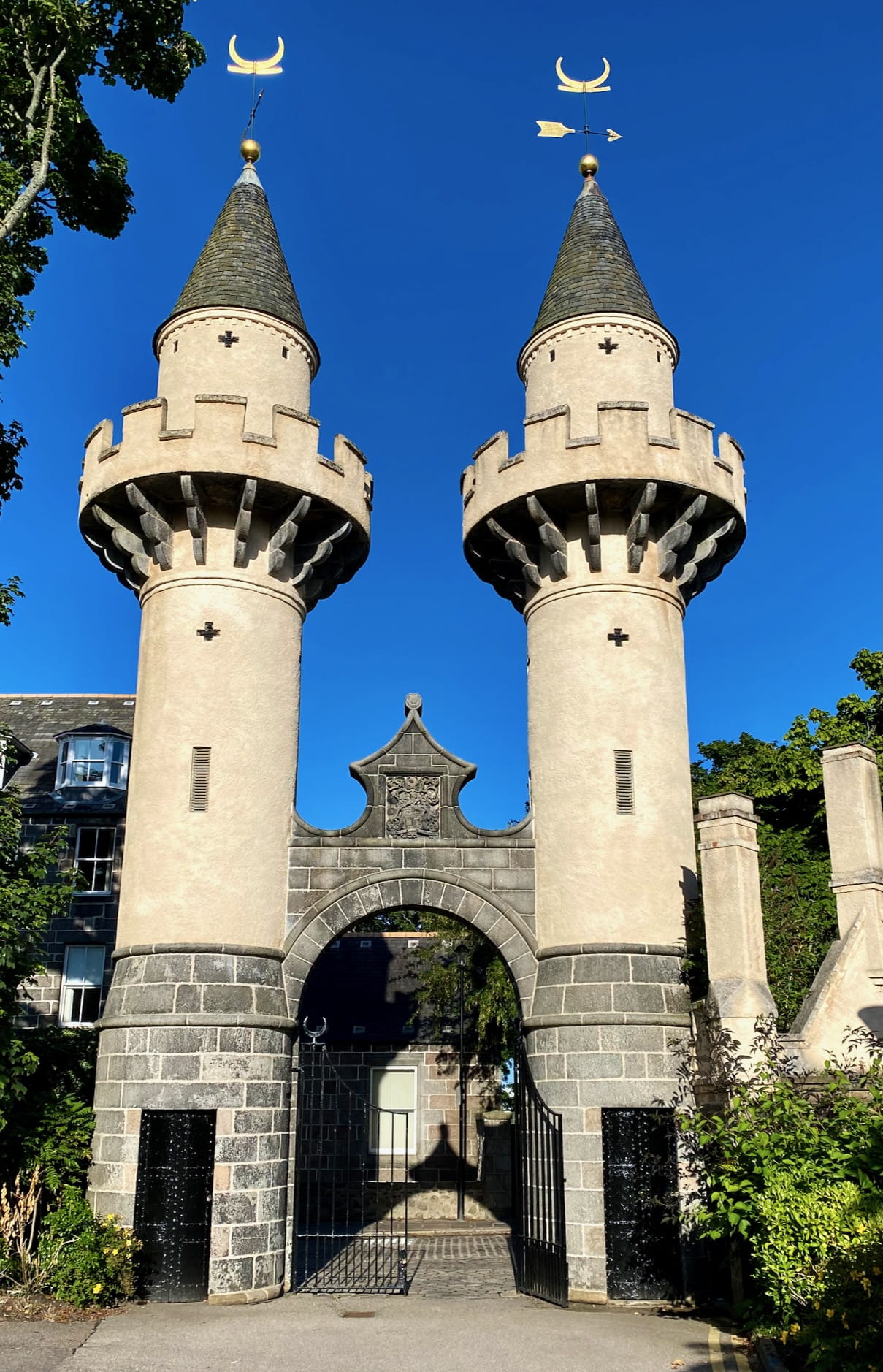
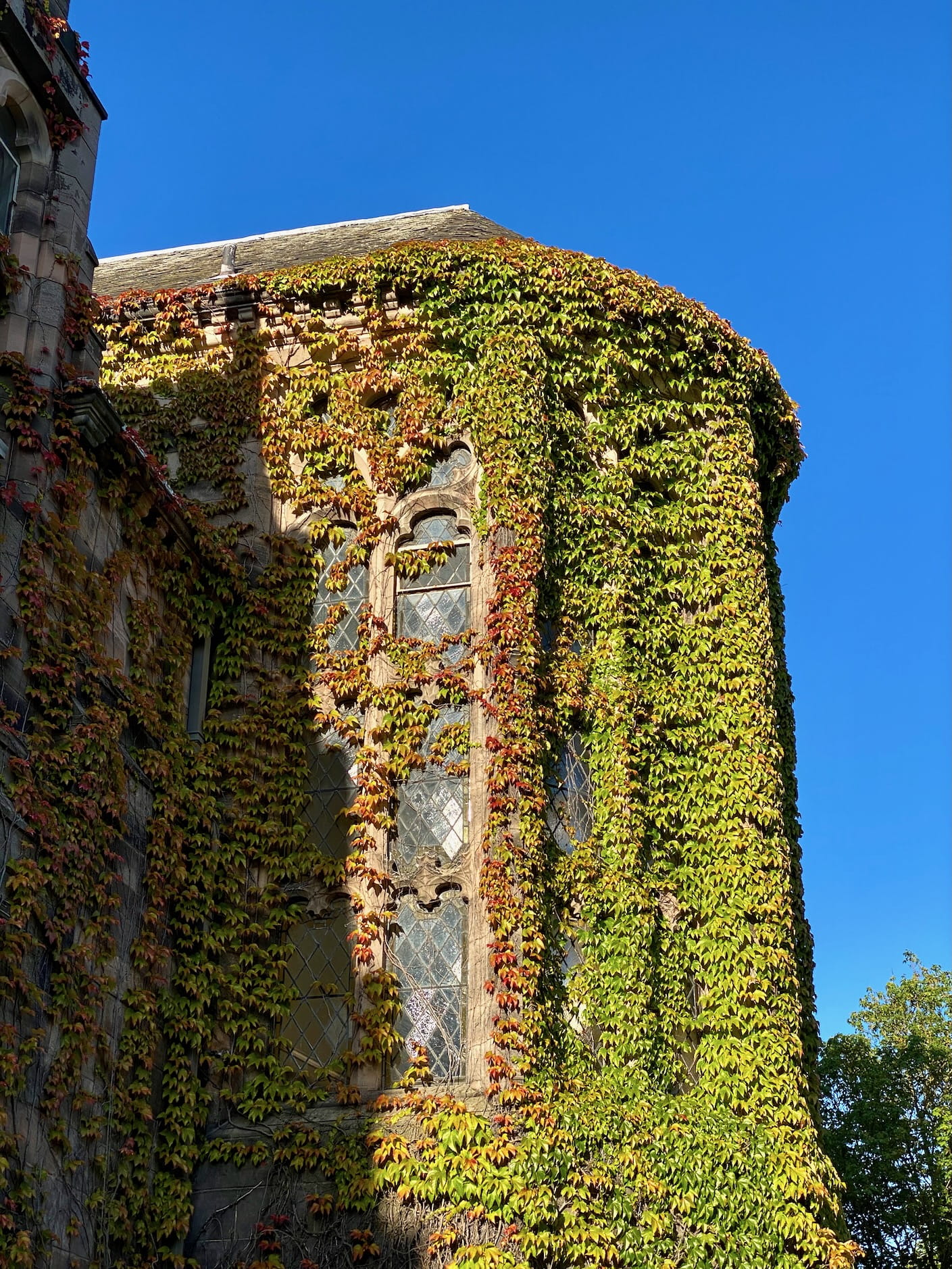
Checking out downtown, we admired big towers with clouds blasting by. As I went absolutely peak tourist and filmed a short video, a voice floated over the fence we were at. “Hey, what do you think of this tower?”
We spent the next hour or so with John, a lovely Scottish artist and decedent of a mason who worked on these very buildings. He took us inside his studio at Marischal College, and even led us down into the abandoned basements. An old anatomy college was being slowly repurposed by school-affiliated artists, dissection showrooms turned into dance floors. The basement was still fully stocked with woodworking tools for preparing coffins. Some piece of equipment had an asbestos setting.
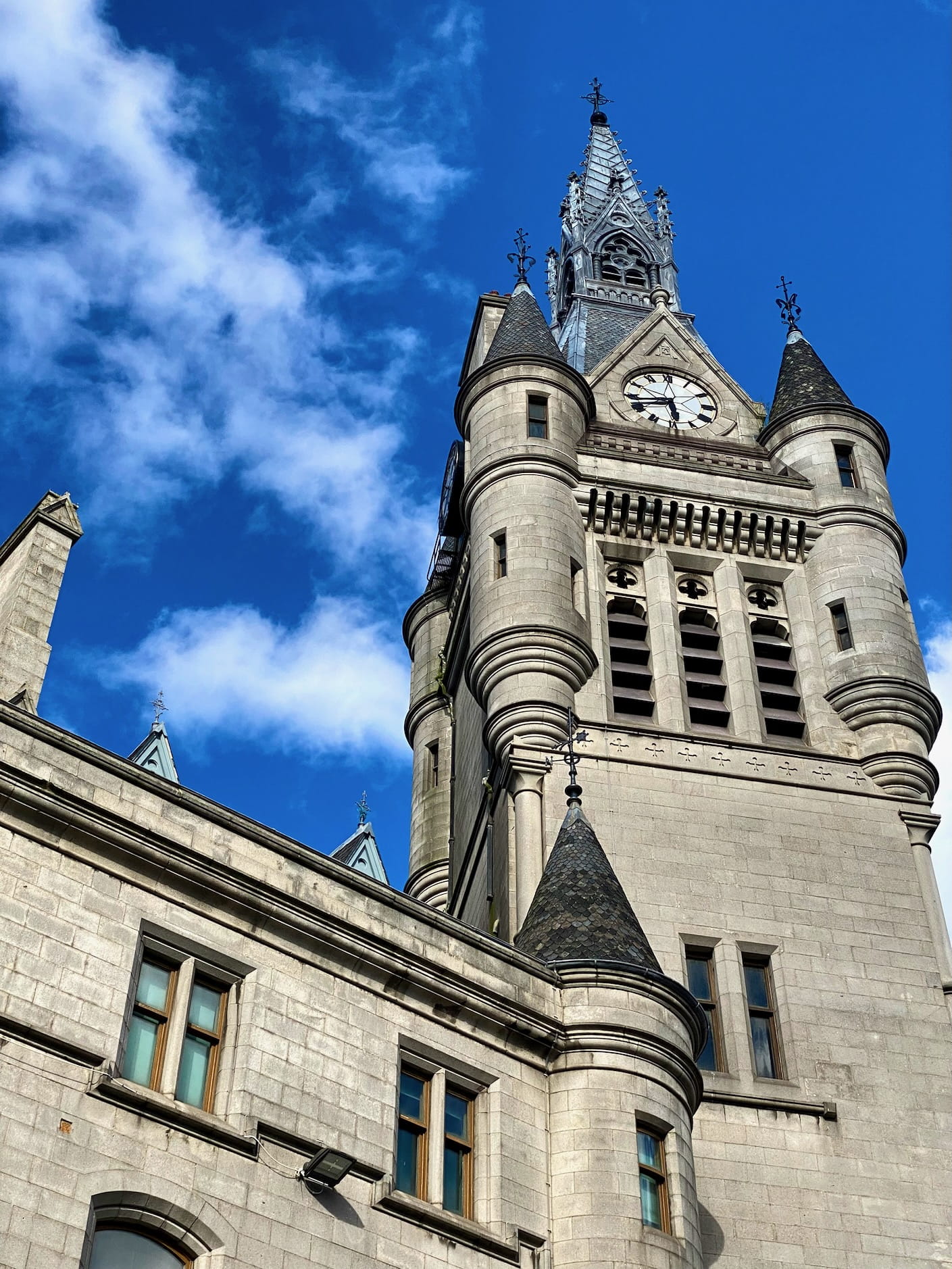
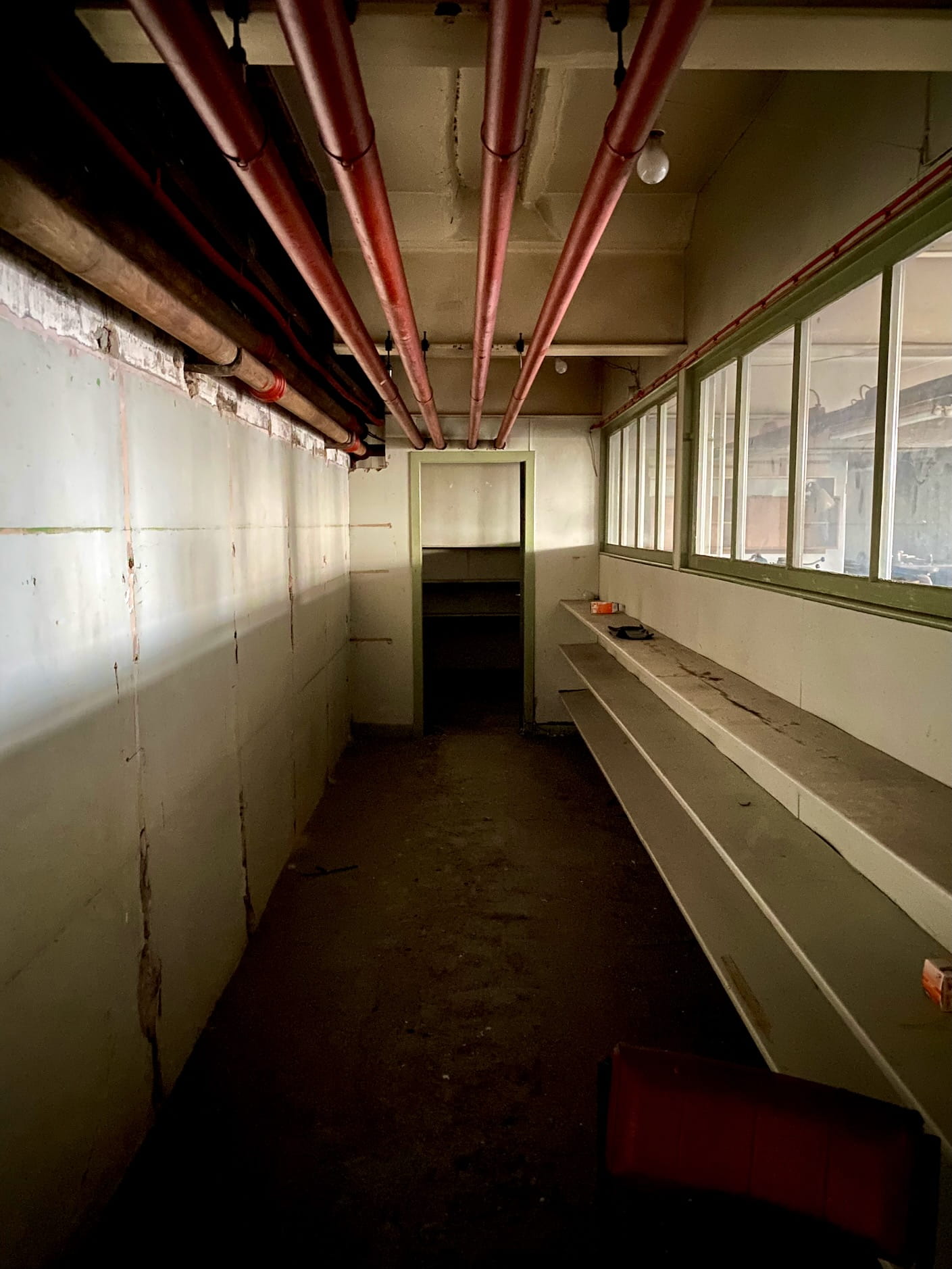
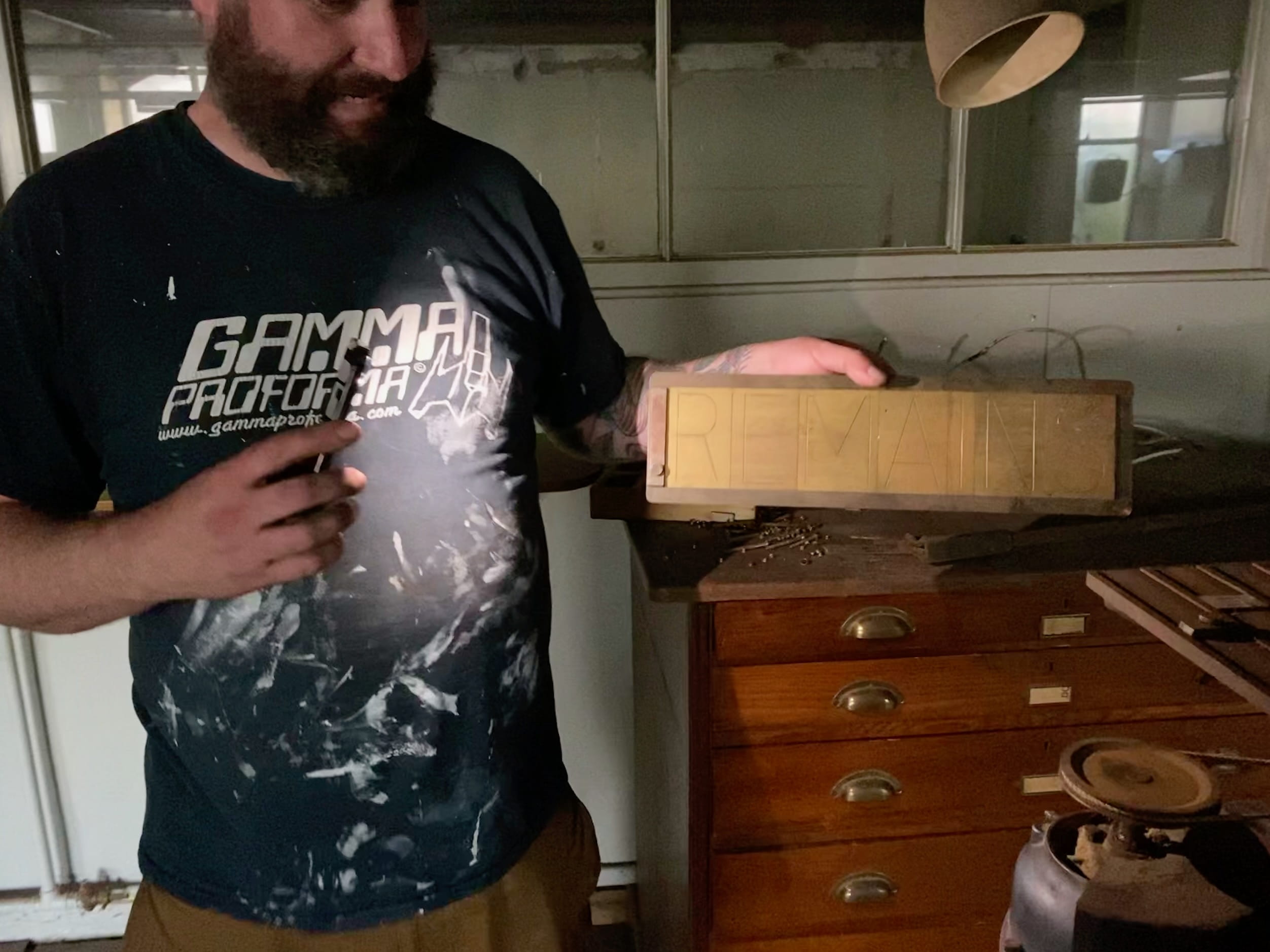
John told us Aberdeen was like a big village, and everyone sort of ended up knowing everyone. You could feel just under the surface that if you found the right friends and pubs, it’d be a charming place to live. He eventually sent us on our way with recommendations for local abandoned castles and, of course, the best fish and chips in Scotland.
Linn of Dee
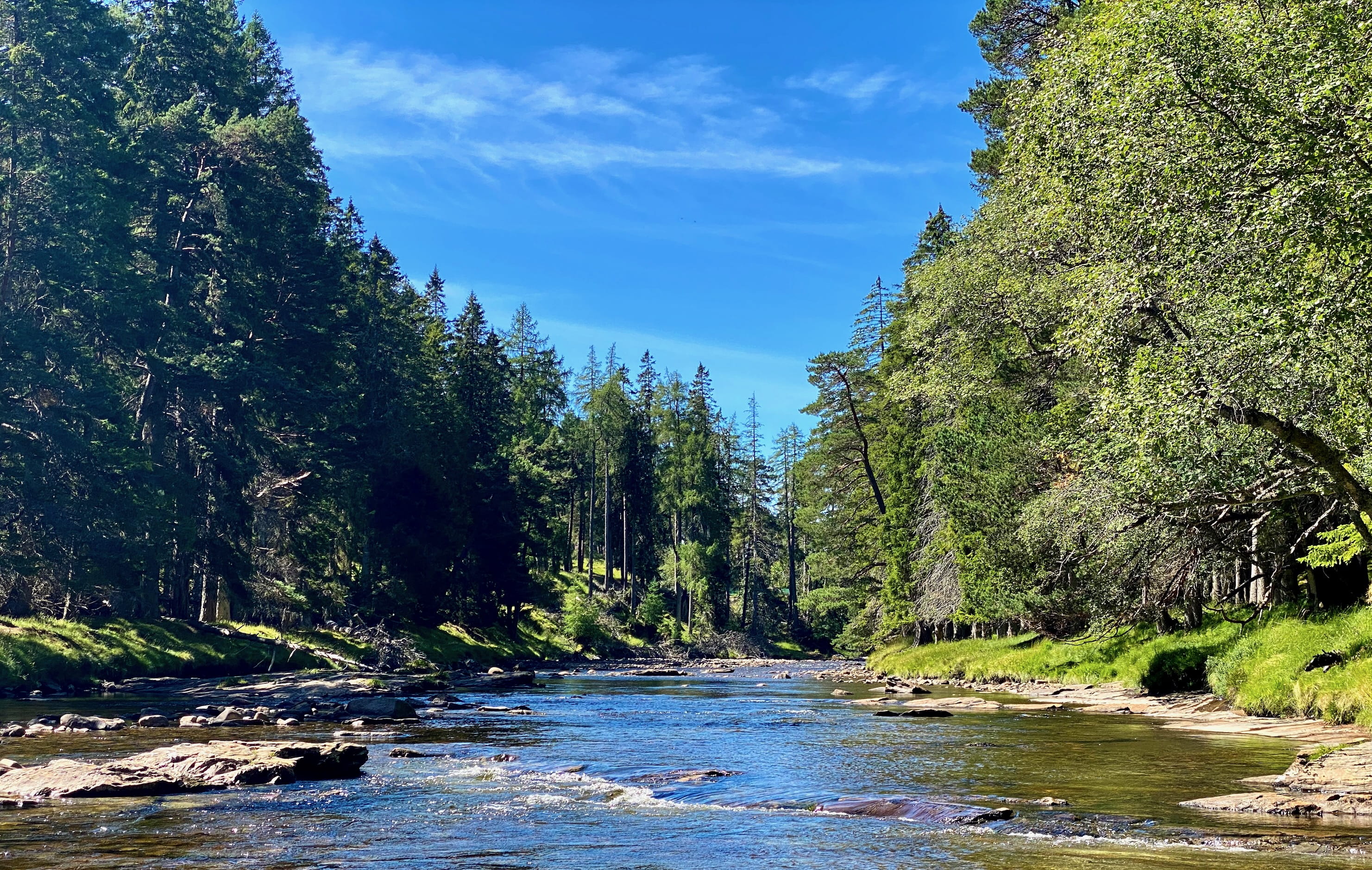
I don’t want to oversell it, but I’m going to anyway: this was my favorite hiking I have ever done, anywhere, ever.
Linn of Dee is one of the many spots you can hike in the Cairngorms. The Cairngorms, which joins the plentiful ranks of Scottish words impossible for me to remember how to spell, are a big honking mountain range / national park.
The lushness, quiet, and gentle rolling hills gave me the exact sensation that I was trekking through the plot lull in a fantasy novel. Those preteen years I spent reading doorstop adventuring books, I was always imagining places with some kind of feeling tone I’d never experienced, and suddenly, bouncing (literally) through lumpy fragrant moss amongst trees, soft brook beside, the full force of the experience blasted forth and provided a missing anchor for all those imagined voyages.
I wrote before about preferring forest bathing to the activity of trudging up and down mountains in technical gear. This really hit the spot.
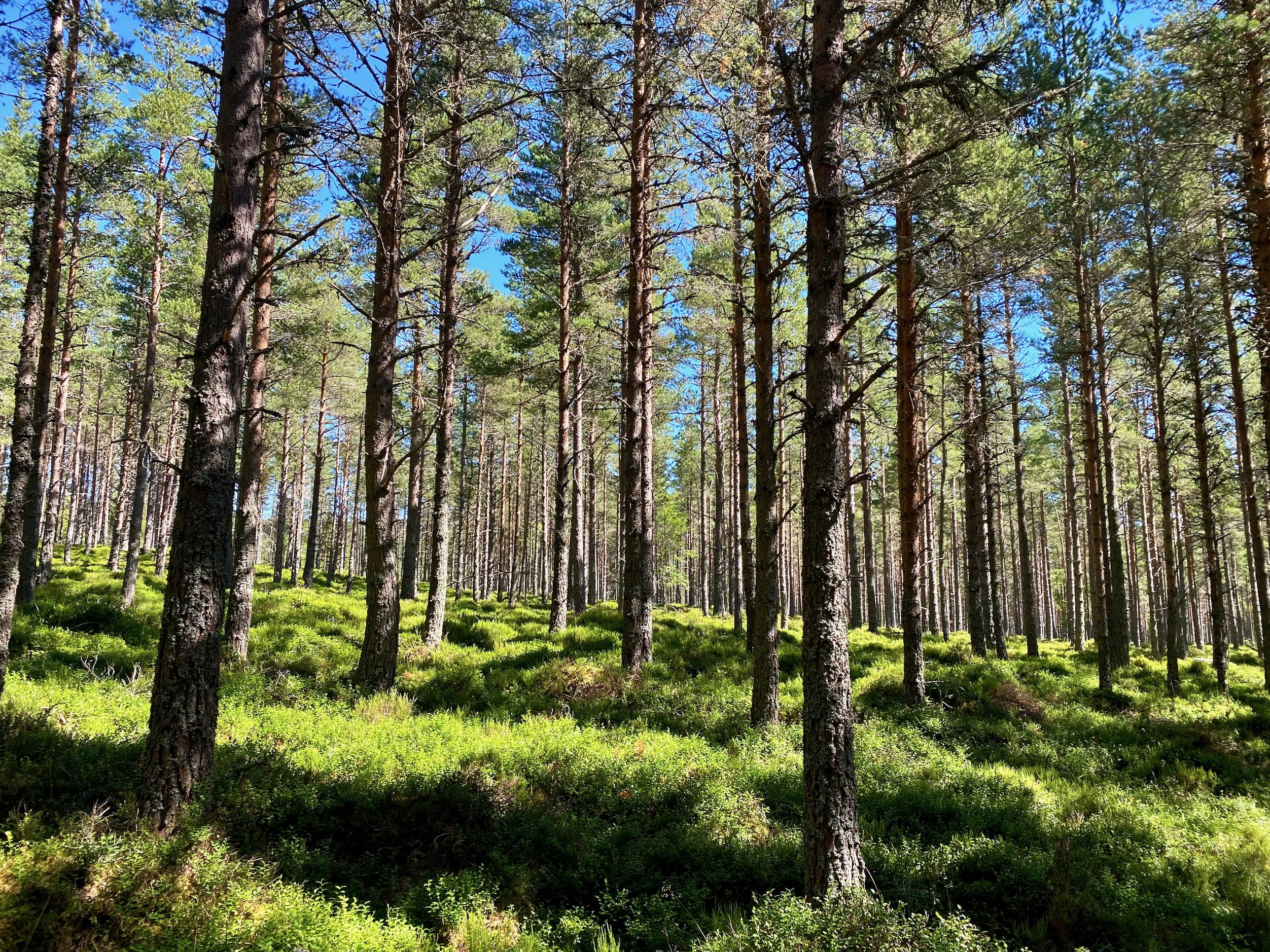
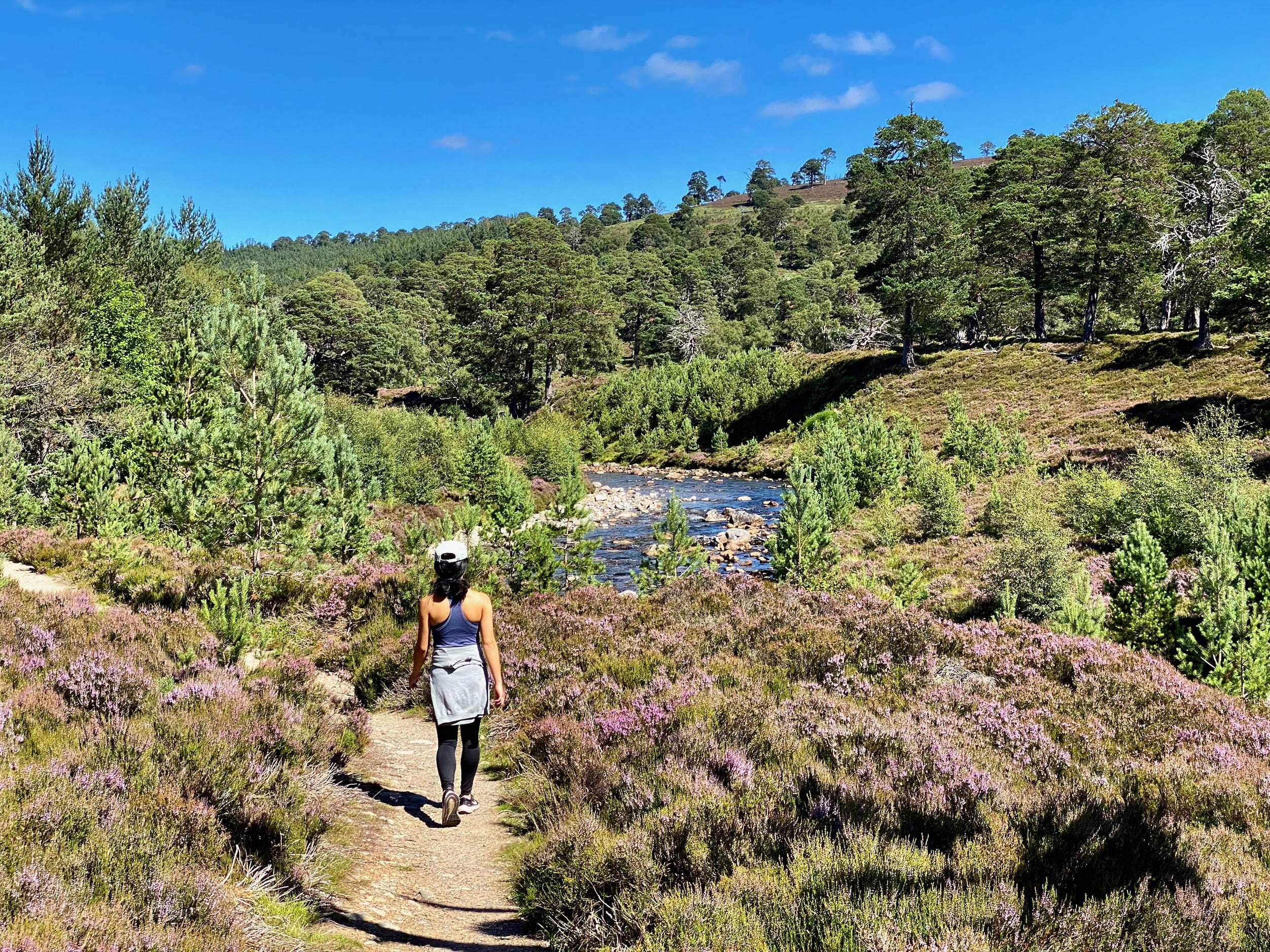
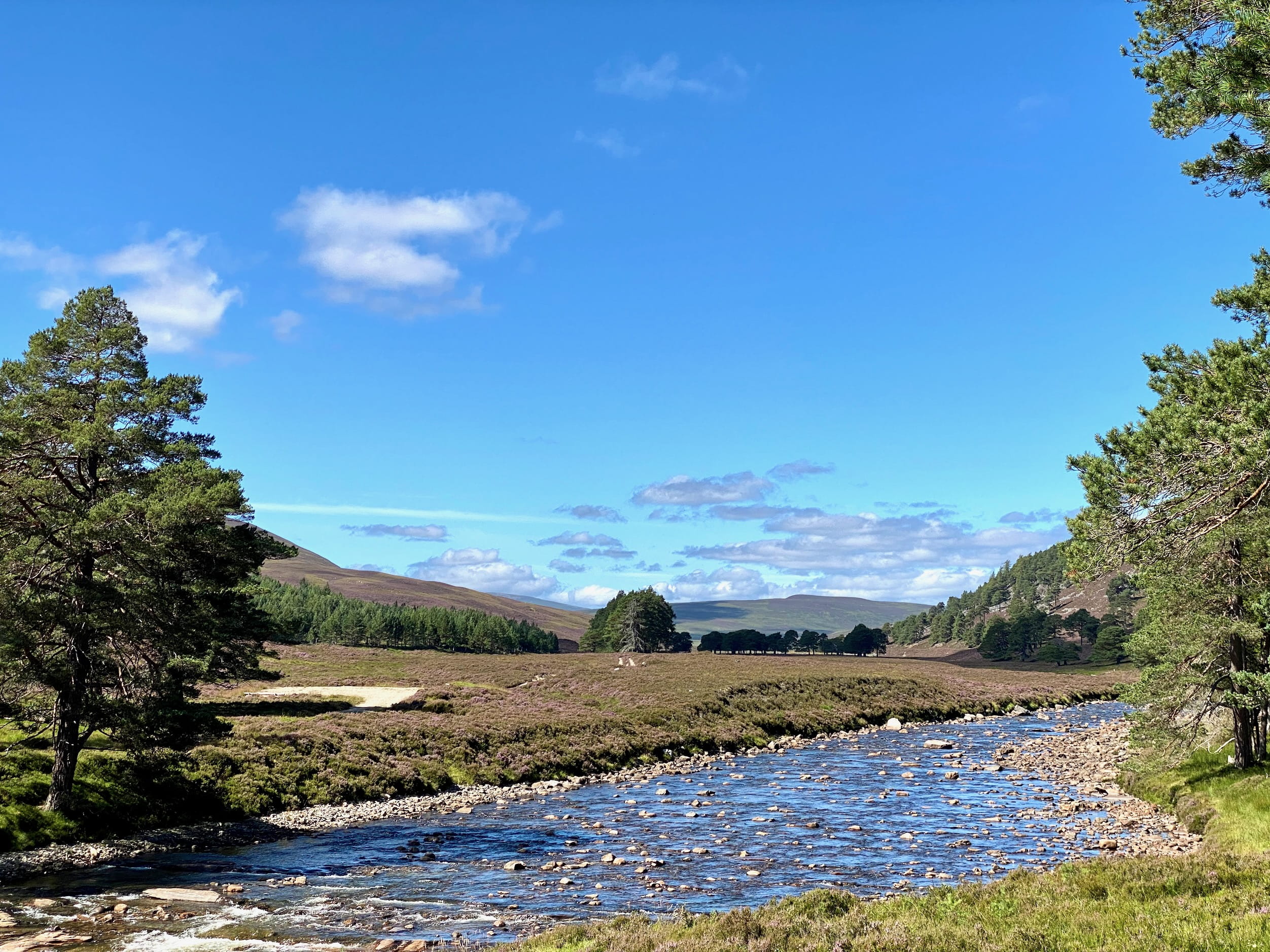
In my notes when I was here, I tried to describe the sensation of quiet after you’ve been in a noisy area. I had two analogies here:
-
The feeling of quiet is soul nourishing in a way that’s most similar to the physical feeling of drinking. I’d read that metaphor so many times in books (“drank in the sunlight,” etc.), but it never actually physically hit me until this experience.
-
The relief of quiet felt like: (a) tensing for noise, (b) relaxing when it never comes, (c) then repeat. With enough repetition you relax further and further, like a muscle unclenching.
This is all pretty funny to read now, because I’m writing this in Vietnam, where even in a smaller town, the level of street noise fluctuates somewhere between extremely unpleasant and torturous, so I’m not sure what I was relaxing from in Scotland.
Balmoral Castle
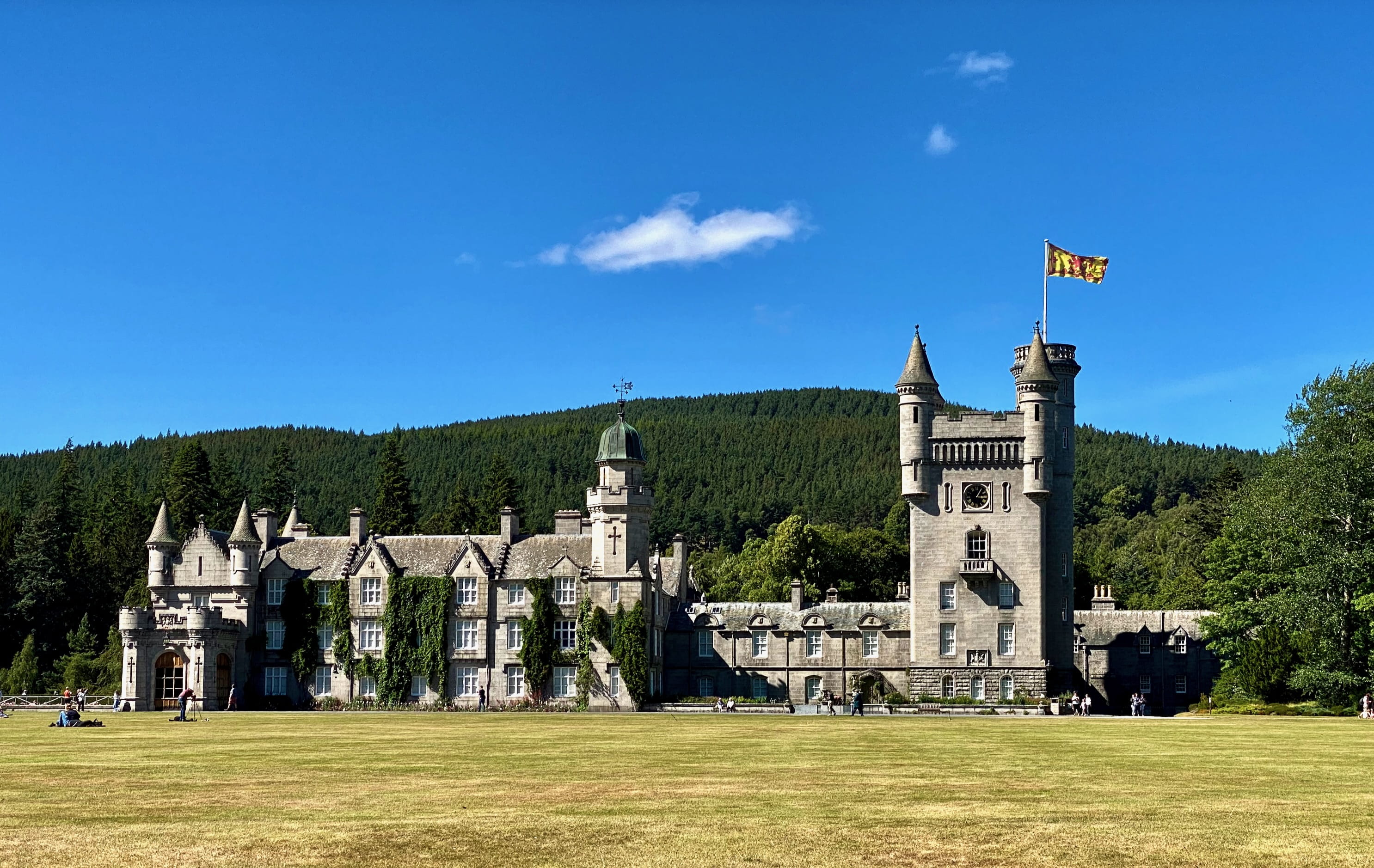
Scotland has a lot of castles.
The castles are expensive to get into, something like $20-$30 a pop.01 Without knowing anything about them, we picked three to visit during our month in the country:
- Edinburgh Castle (see last post)
- Balmoral Castle
- Fyvie Castle
Sheerly due to blind luck, I think we picked extraordinarily well. I’ll put why in this footnote.02
Balmoral Castle has pretty grounds, though we were a bit turned off that we couldn’t walk around the inside because, according to the guides, it was the Queen’s actual residence. We figured that this was one of those things where the Queen has seventy-five “residences” but basically lives in one or two places.
Lo and behold, nope, the royal family has spent summers in Balmoral Castle for decades (centuries?). We happened to come just a few days before the gang arrived. The Queen would die there a few weeks after our visit.
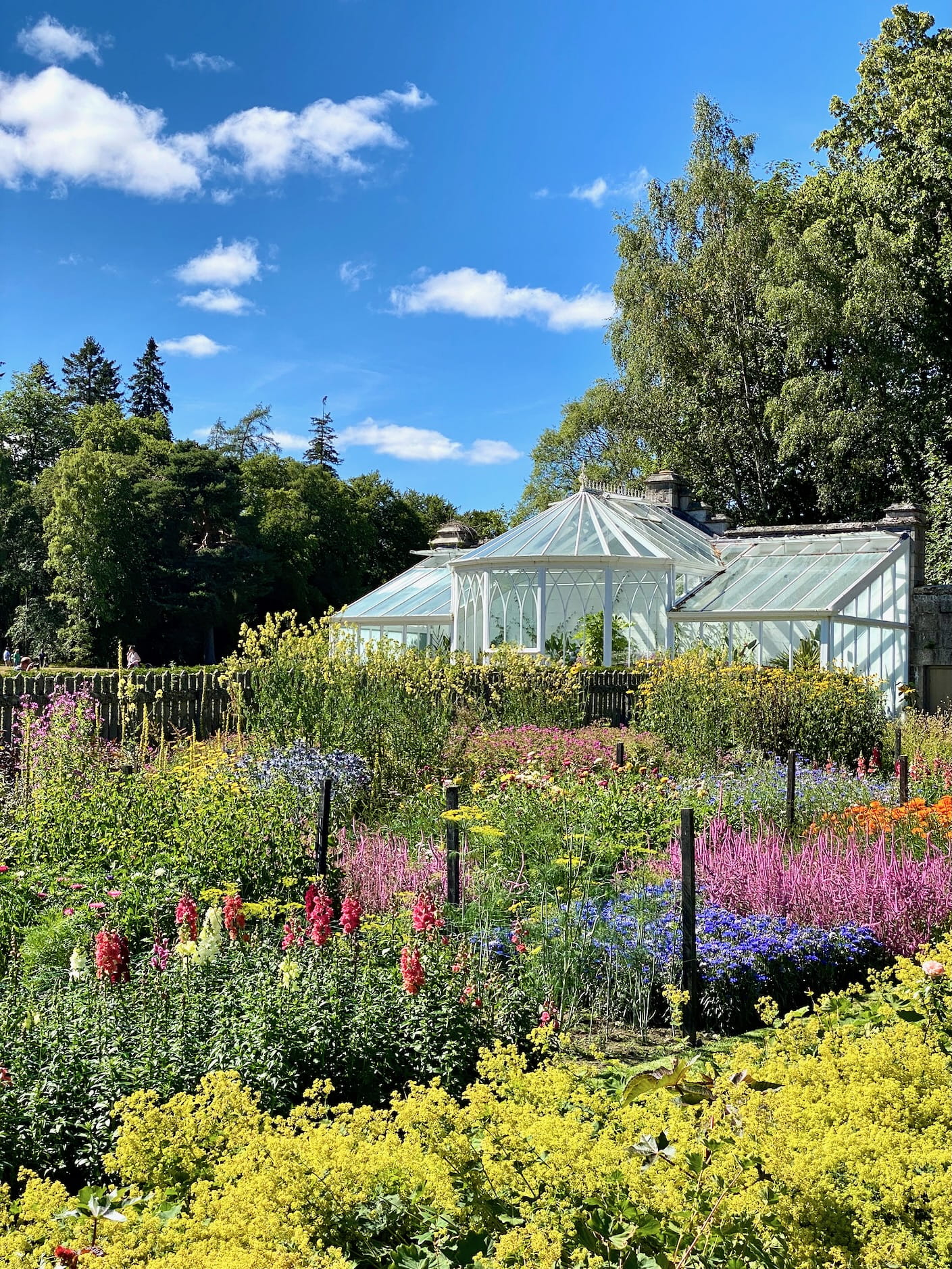
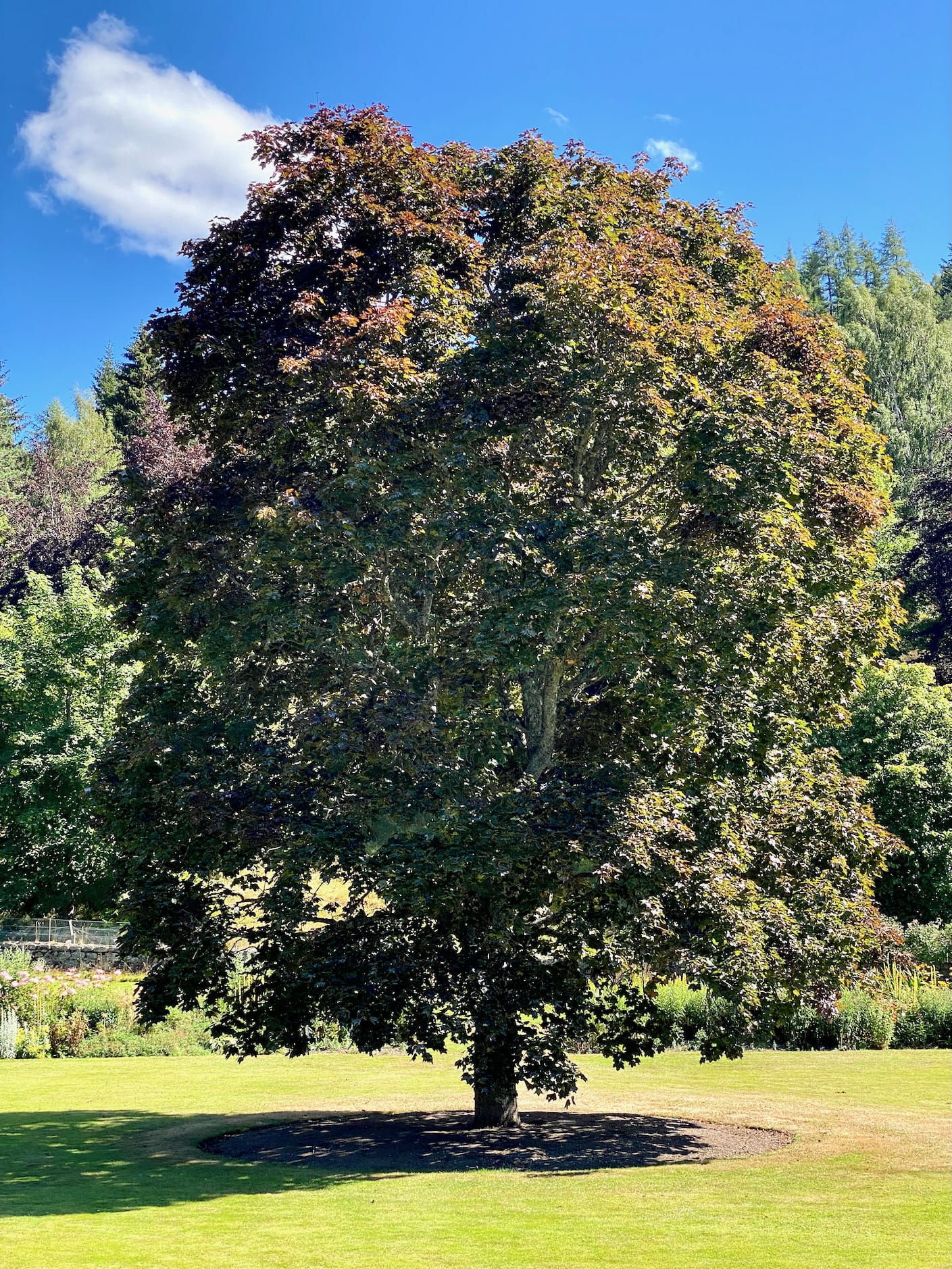
The garden is extensive and grows a gigantic array of crops and flowers. These are used to feed the royal family and decorate the castle, respectively, during the summers when they’re there. Given the cool and sun-limited Scottish climate, the tour guide app explained it is quite a challenge to have all the food ready exactly by the time they arrive each year.
Since we came just a few days before the royals would arrive, the produce was in full harvest.
This triggered something unexpected, which was a pang of longing for homemaking. We’d been on the road for several months at this point. At our apartment in Seattle, without the logistical inclination for pets (briefly: space, travel, and allergies), we’d taken to moderately-extensive plant parenting. This meant yearly repotting, weekly watering, and nearly daily admiring and gossiping about our thirty-ish plants, all of whom we gave names by which we referred to them exclusively.
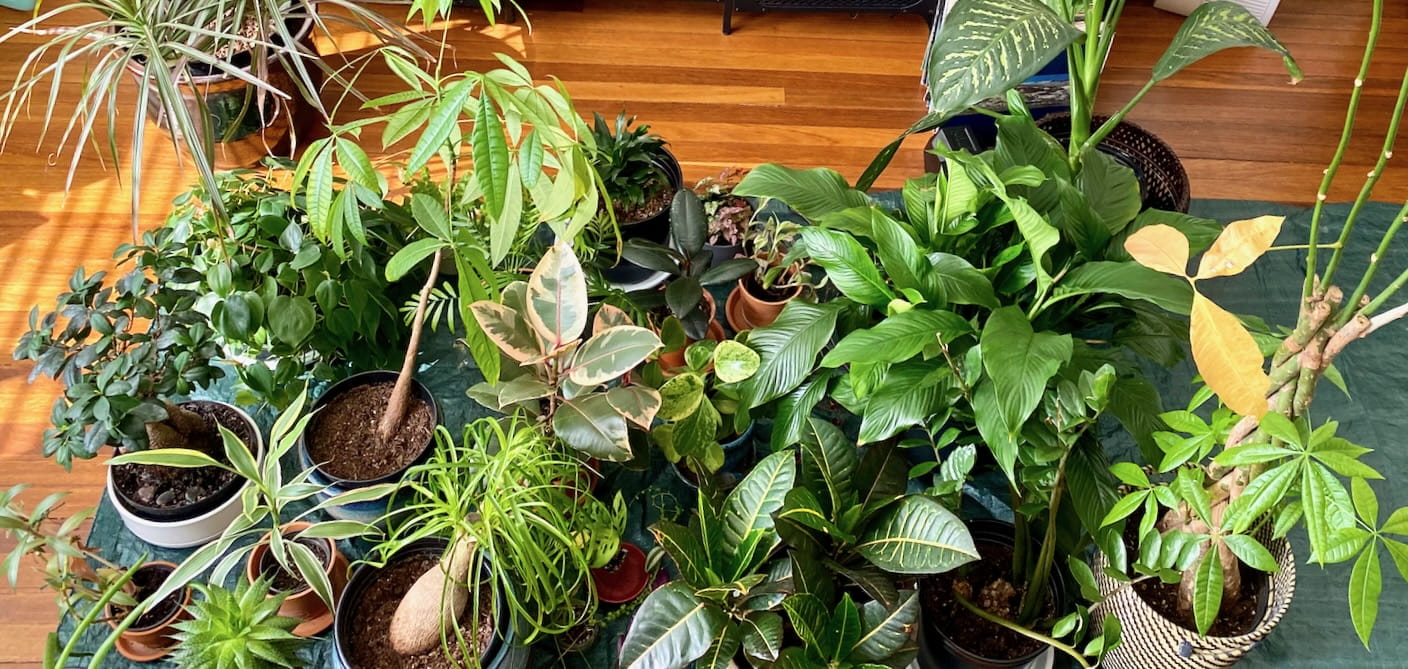
I miss you guys. Especially Leonardo, Rainier, and The Toe
Coupled with the joy of cooking with fresh herbs (always failed at keeping these growing, though), seeing all the queen’s plants suddenly brought about a strong urge to settle down, something distinct from homesickness and a feeling I hadn’t known before. It’s still faint, and comes and goes. Personally I’m going to chalk this up to being in my thirties but I’m sure it’s situation dependent.
Interlude on British Royalty
I never cared at all about British royalty. So it was weird to be in a place where familiarity and even interest with the ins and outs of the monarchy was assumed.
Some of it hadn’t aged well, like hearing one of the old queens wax about her favorite servant. Other times I felt like I was wading through detailed accounts of the rigamarole surrounding their posh lifestyle. Most of it was just… boring.
I’ve had this problem with famous people my whole life. Not that I have a problem with them, I simply have no interest in learning about them. Which then presents myriad micro problems during conversations when, inevitably, TV or movies comes up and someone gasps, “you don’t know who X is?!” I almost never know who X is.
It’s not that I’m opposed to fame out of principle, I just don’t find it compelling to memorize people’s names or achievements. The way I’ve dealt with this preference has been extremely simple: I never make any effort.
Then here we are, and the minutiae surrounding the Queen, both former (Elizabeth) and very former (Victoria), the Price Albert (who was married to Victoria, but he wasn’t King, due to various rigamarole around titles, and instead he was a “consort,” but then also called “Prince” somehow—see how boring + complex this is already?) is displayed with what I can’t help but feel to be a frantic pride: this is the dress she wore in this year to this occasion, designed by this person; these are the outfits her various servants wear depending on their rank and duties; in the mid eighteen hundreds, their daily routine went like this and this and this.
I think part of the weirdness was, because not only is the monarchy still reigning, but we were literally at their house,03 none of the commentary could break the fourth wall at all and say something like, “look, we get this is all a bit obsessive, and the amount of power and wealth they have is bizarre, and their behavior and opinions may even be distasteful in the current day and age.” But without any of that, it had the flavor of bland and creepy doublespeak you’d normally associate with some authoritarian state museum.
Then Prince Albert, that wonderful funny genius of impeccable taste, had the most grand idea—why don’t we just buy the castle outright, and make it our own home? And while we’re at it, tear down the dingy thing and build a new, grand castle behind it? And so we did just that, and—with Albert’s brilliant design playing the leading role04—a delightful new summer home was built for us.
– Queen Victoria (light paraphrasing)
Loch Muick
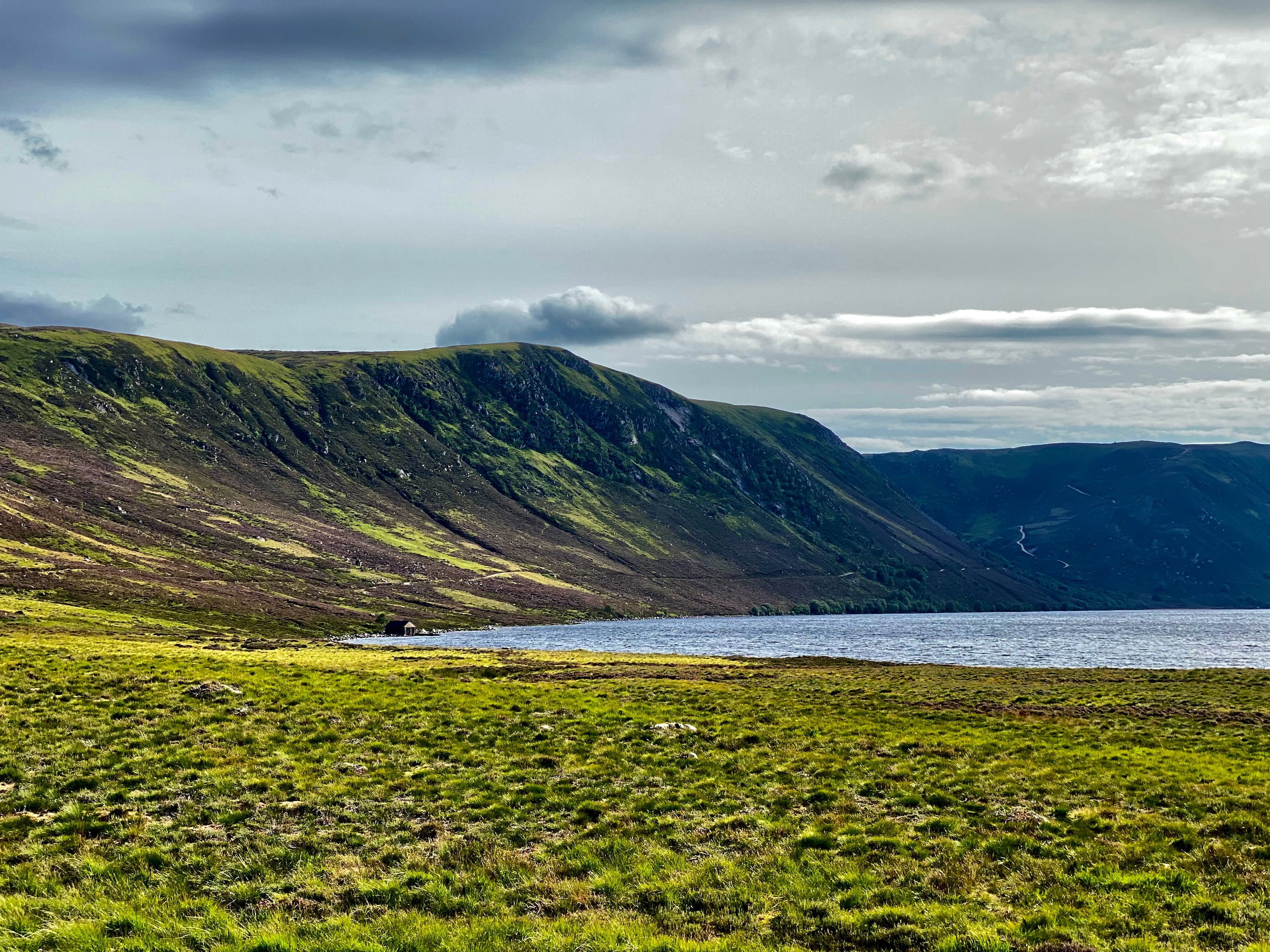
I couldn’t tell exactly, but I think the greater grounds of Balmoral Castle might have stretched way out into this loch, making this primo fancypants hunting grounds.
We went right around sunset. It was quiet and cool for the long approach. A rangle of deer with gigantic, fully developed sets of antlers eyed us from the hills. At the loch, a couple locals were, apparently fully voluntarily, taking a frigid dip.
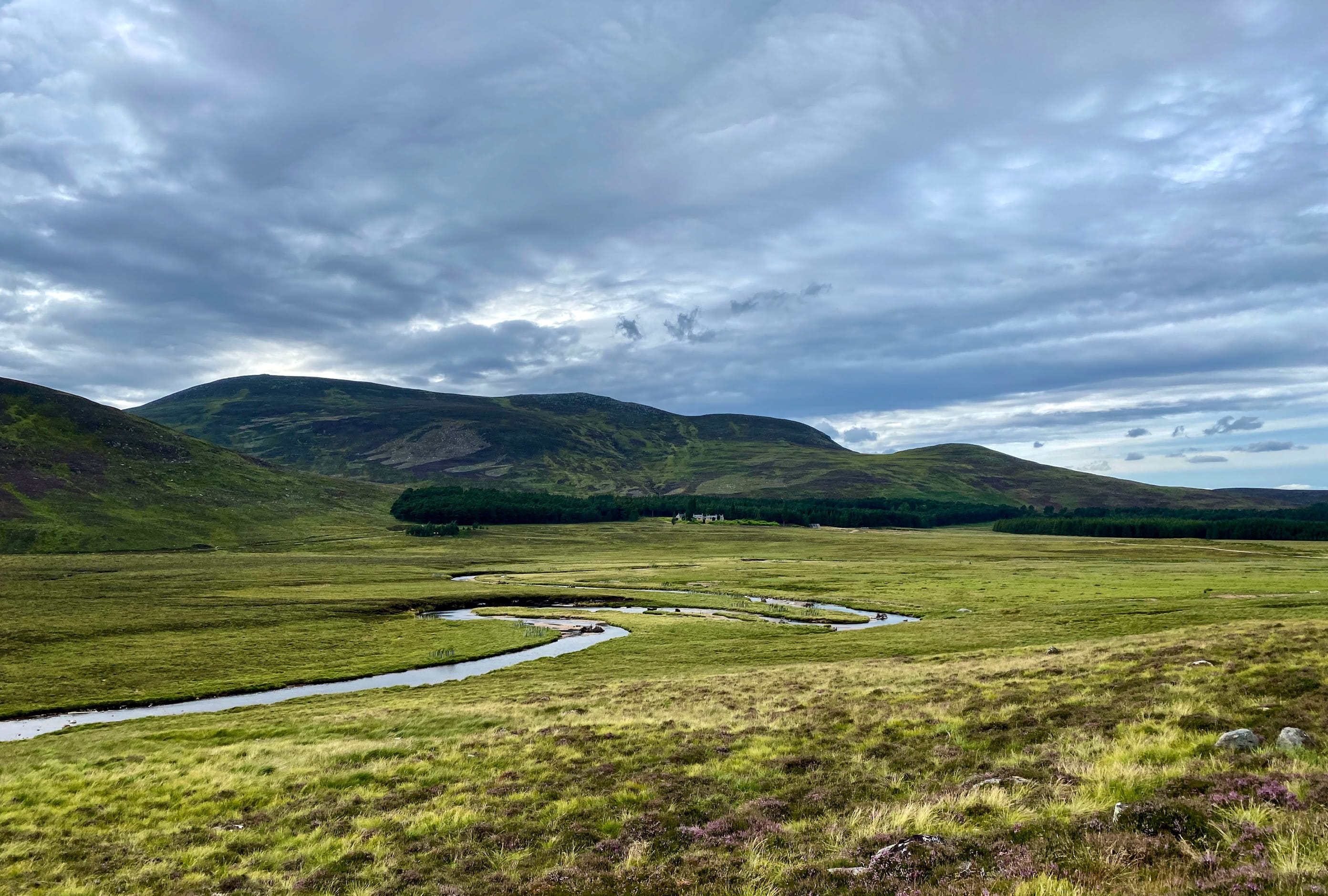
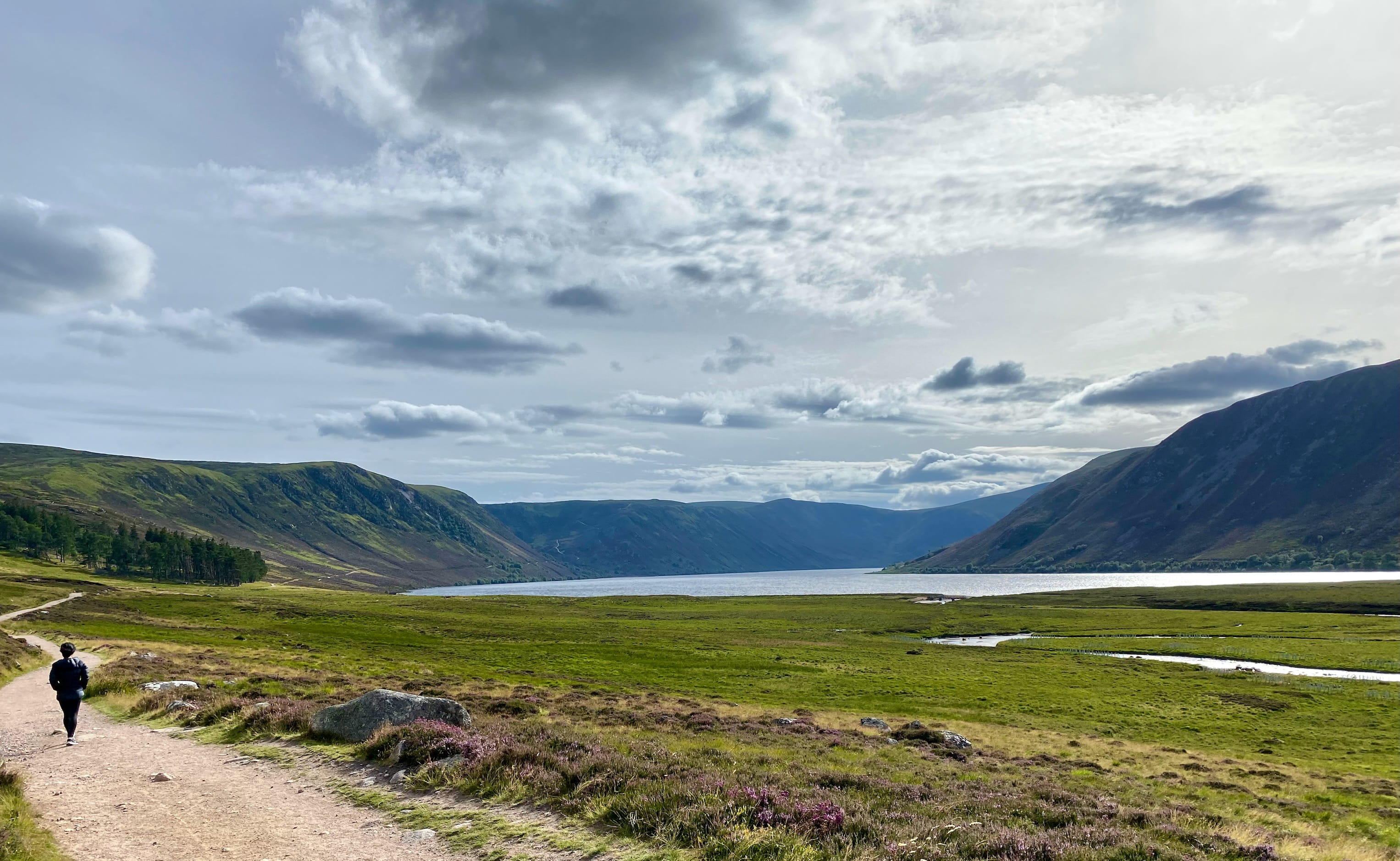
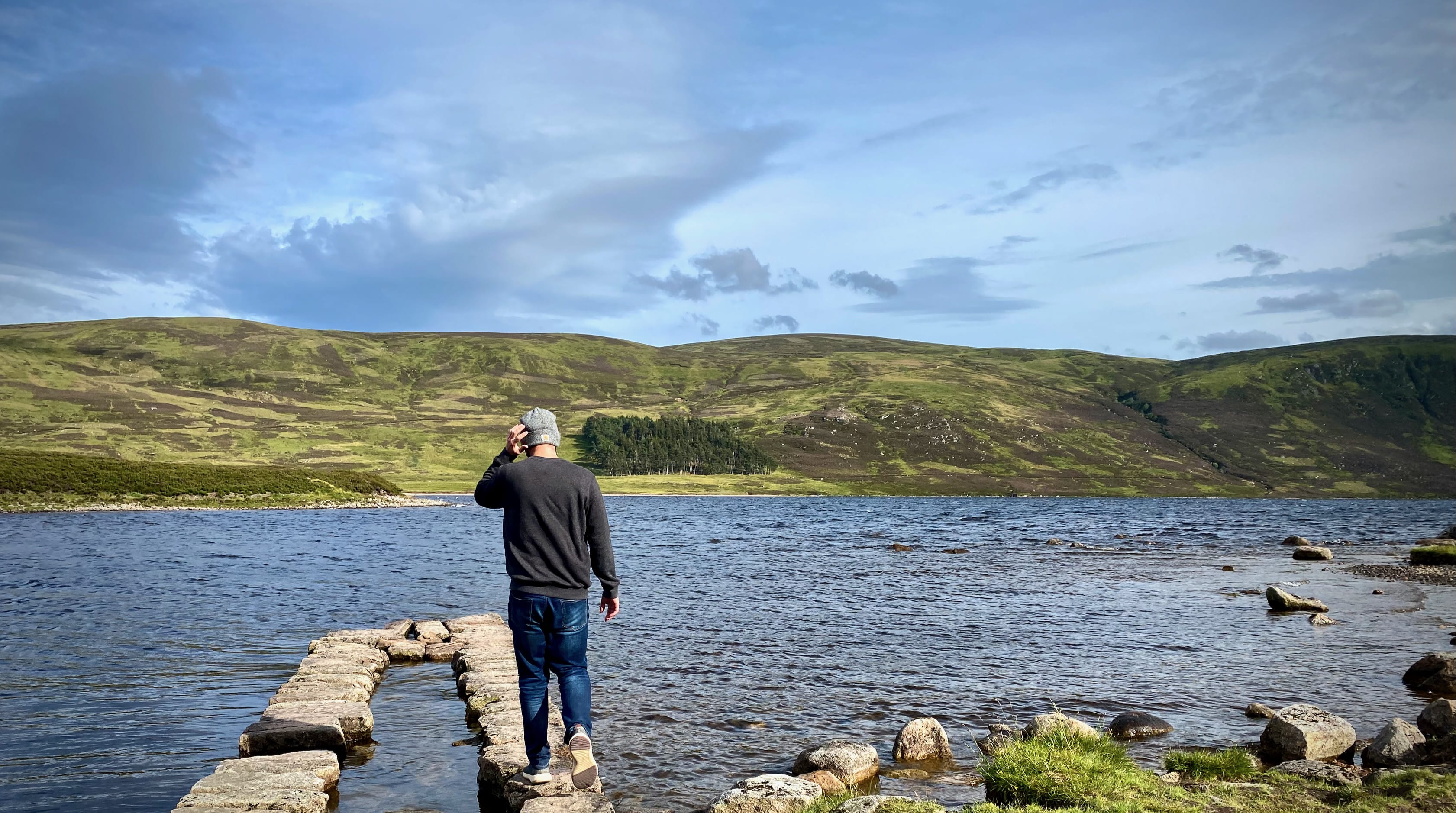
BTW, we should get this out of the way early: “loch” is just Scottish for “lake.” But “loch” is considerably more fun to say so I will keep using it throughout.
Slains Castle
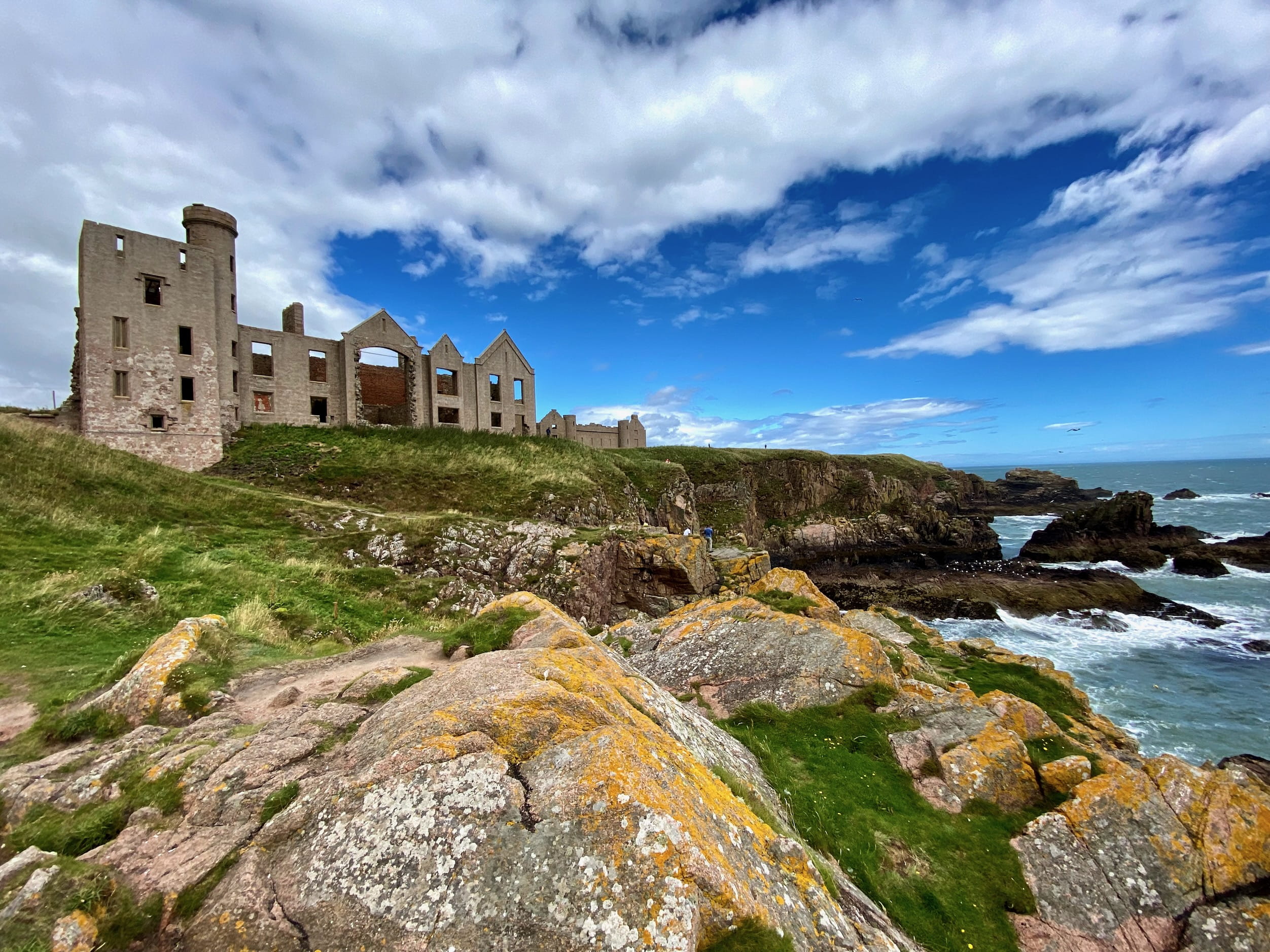
I am delighted to tell you that, because it is completely ruined, we did not have to pay any entrance to walk around Slains Castle.
If you’re up-to-date on your tetanus boosters and the population of grandmas and five-year-olds is low, the ruins would be a great place to parkour around. Several stories of the rubbly towers are have working stairs and empty windows.
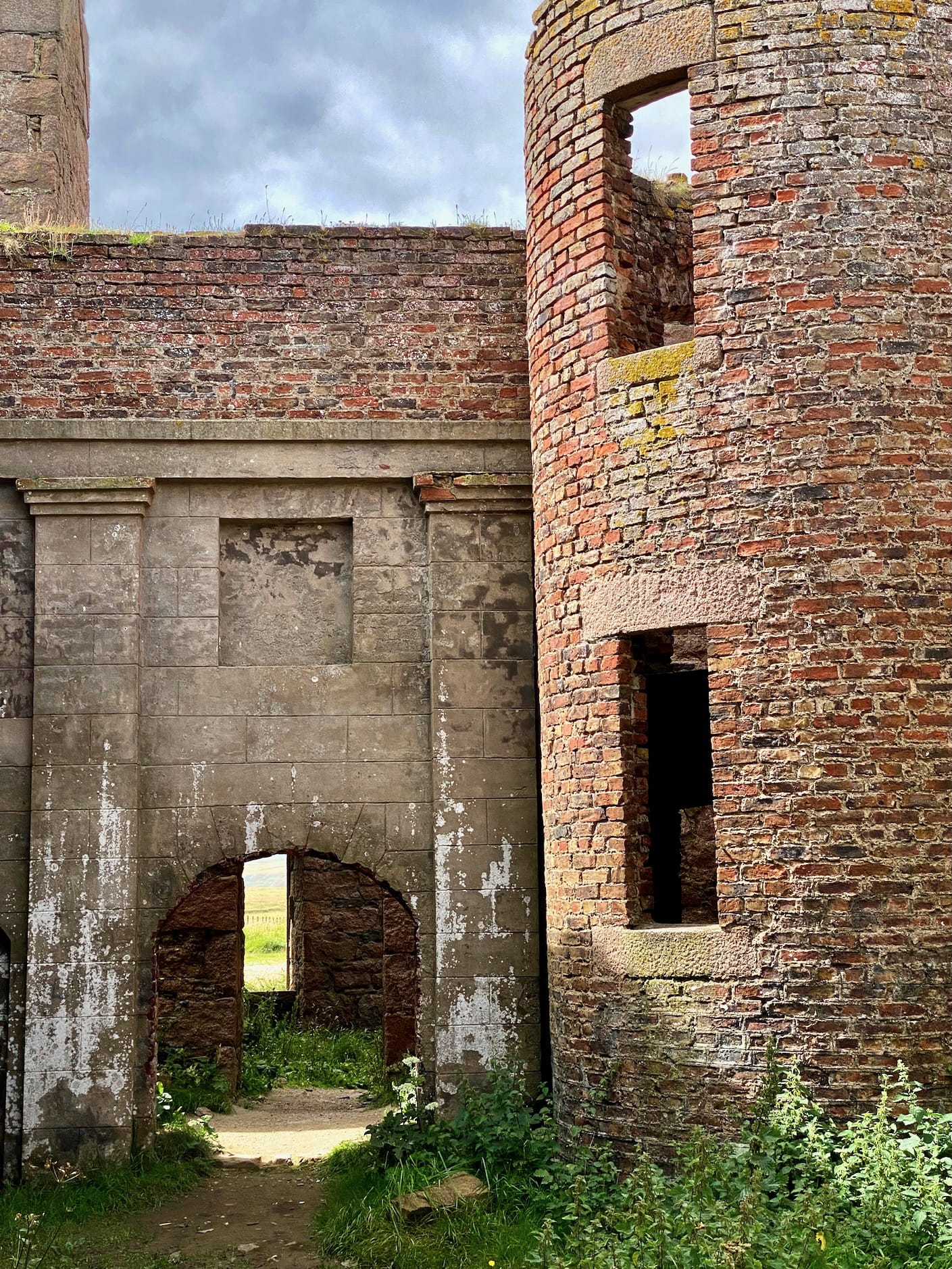
I wish I had a better word for it, but the only appropriate label for this situation of castle perched on rocky cliff is the clichéd: dramatic.
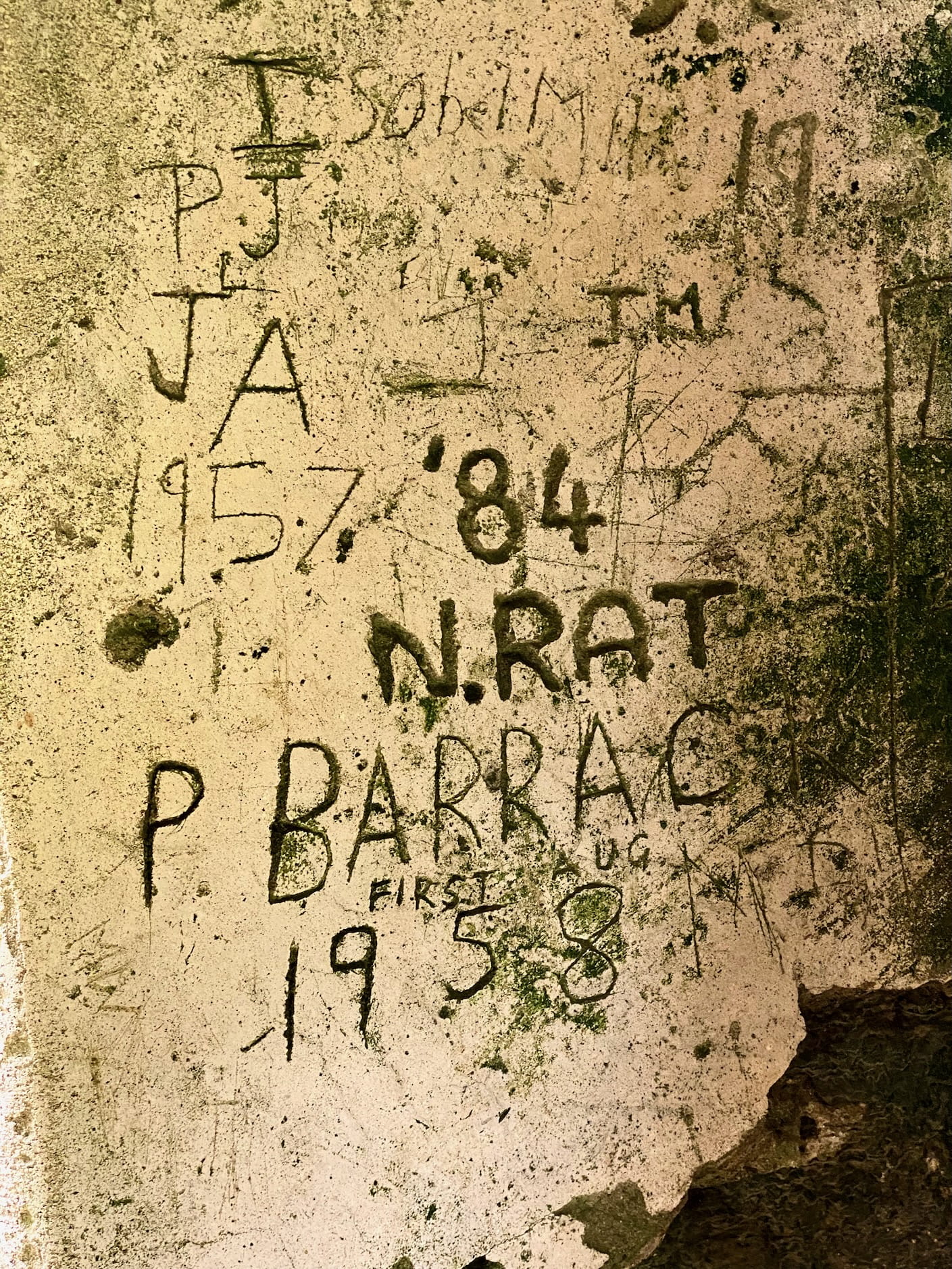
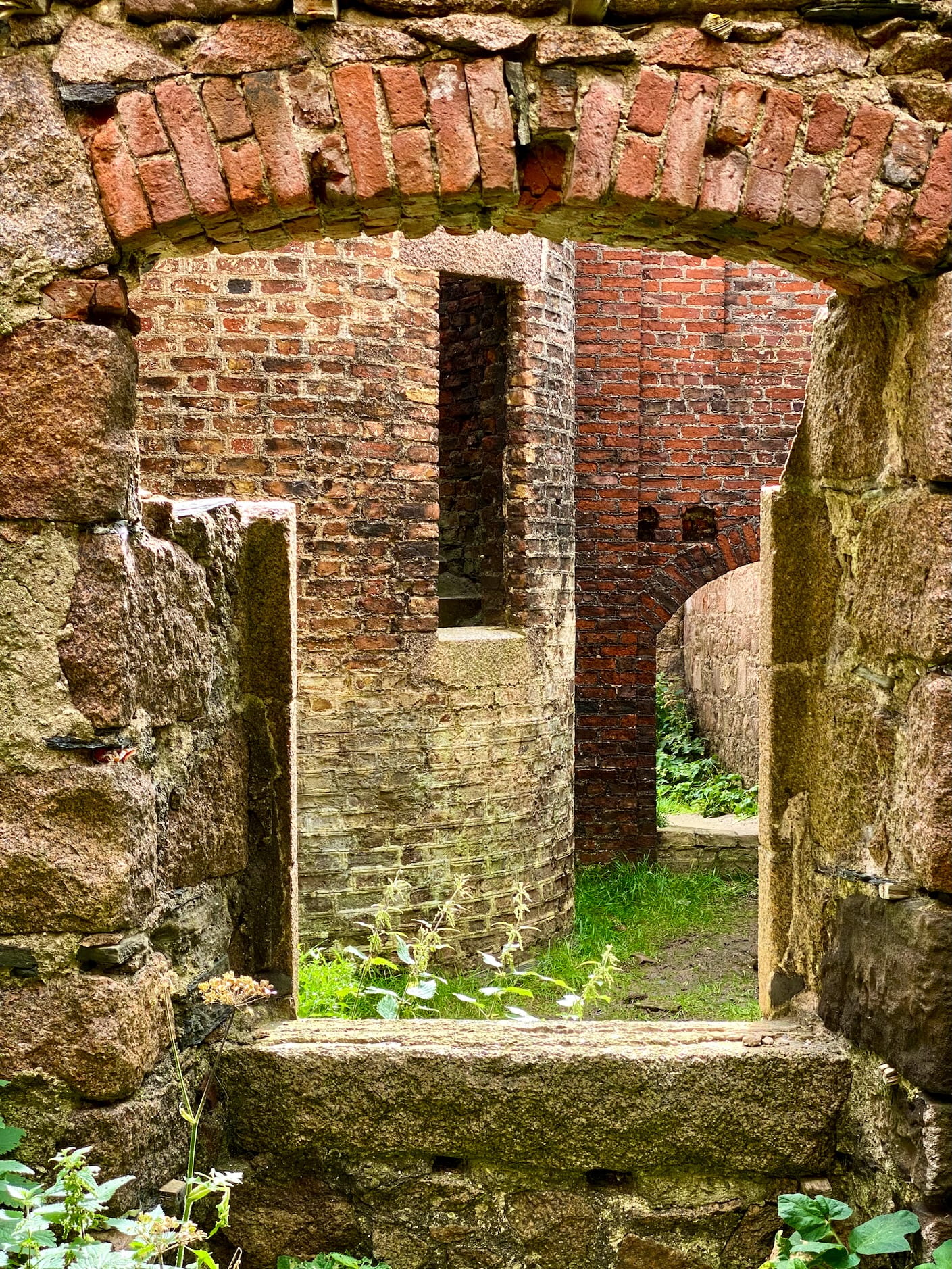
At first my main thought was, wow, this is the oldest graffiti I’ve ever seen. But later I realized, wait, you can just carve any year in you want. I wonder what’s the oldest believable year you could pick?
Fyvie Castle
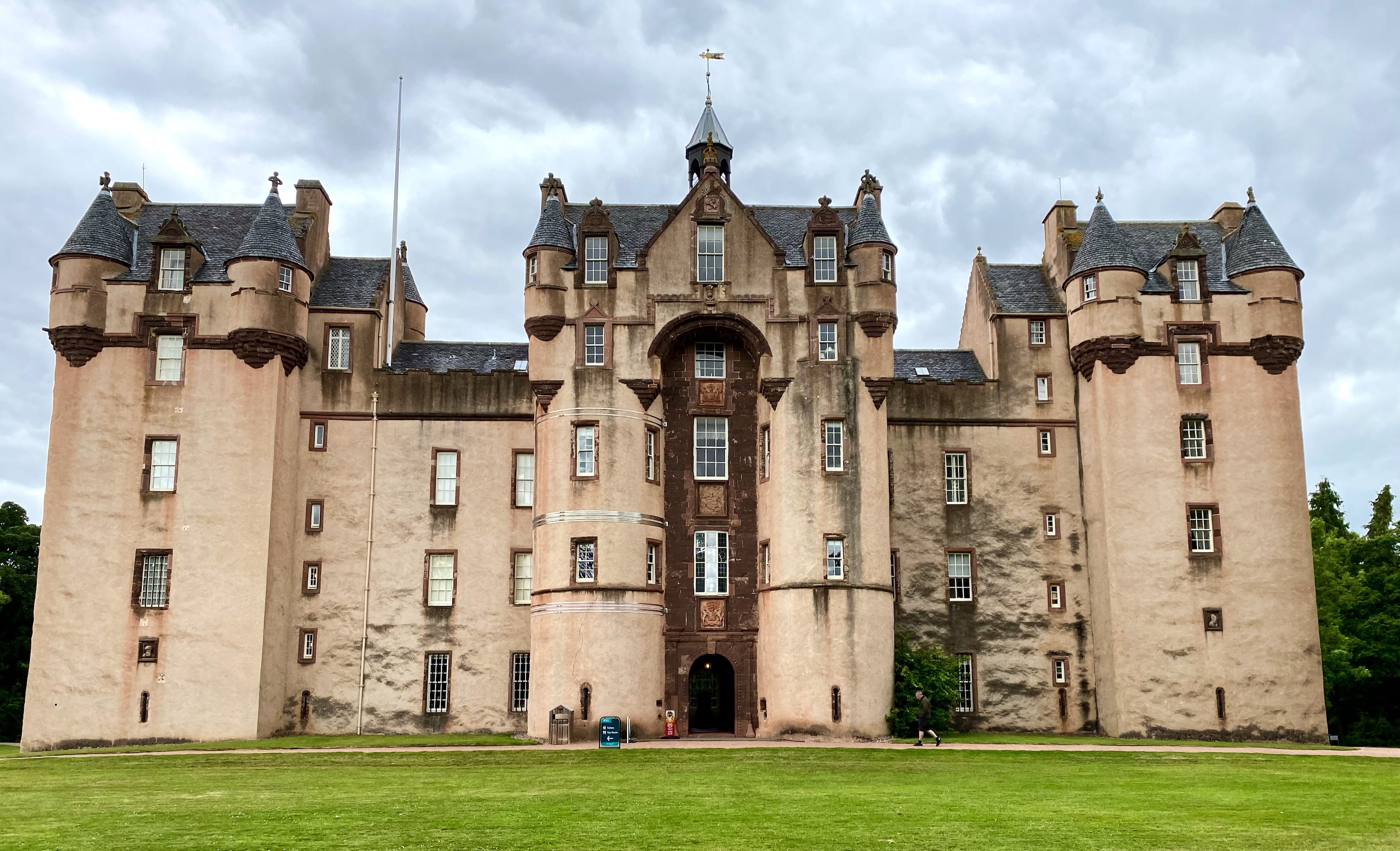
Fyvie Castle is number 3/3 that we paid to enter. The appeal of this one is that you can walk around the inside (guided tour only) and it’s all decorated just like it was when it was lived in.
The place is massive and has a serious portrait collection. I originally wasn’t thrilled about the whole guided-tour-needed thing, but the guide had worked there for a gazillion years and was clearly an enthusiast, so it enhanced the experience to hear the history and stories and get to ask whatever stupid questions I wanted.
Nobody actually lives there anymore. Apparently the maintenance costs for a castle like this are so enormous that if you end up inheriting one, after the novelty wears off, it’s just a black hole on your bank account. The last owner sold it to Scotland’s historical / tourism umbrella organization I’ve forgotten the name of. They fix leaks and run tours and probably actually subsist off of trust funds.
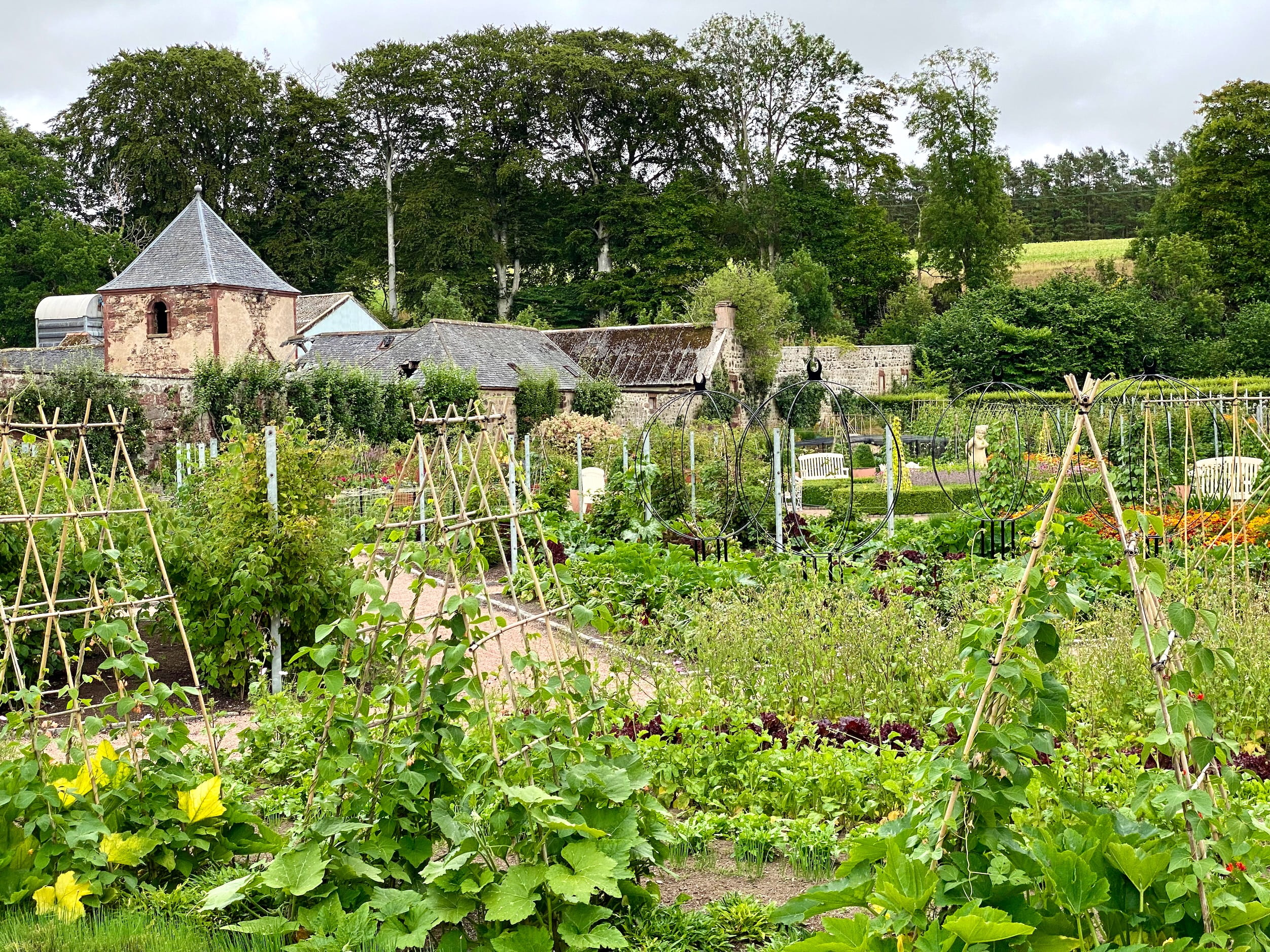
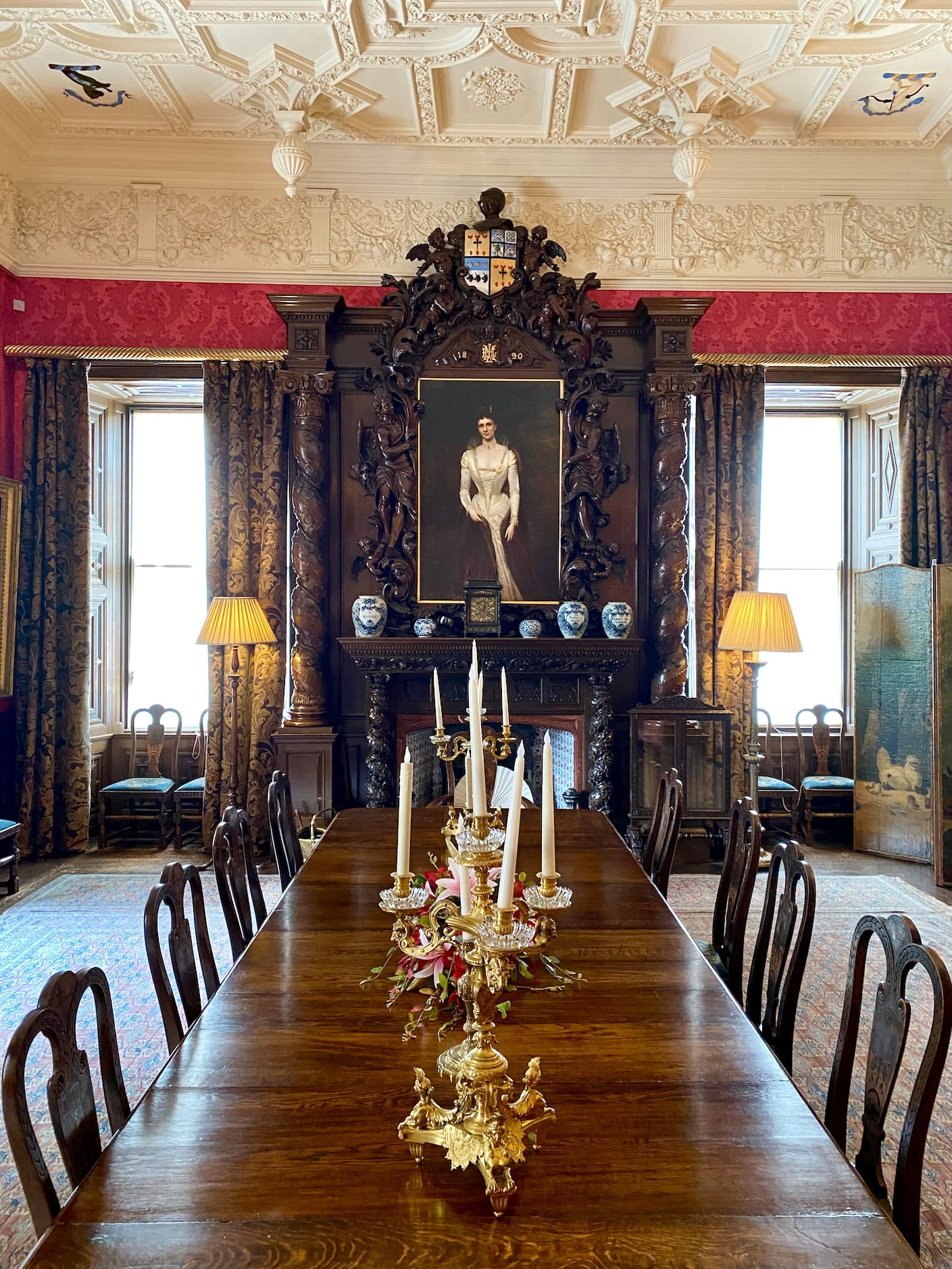
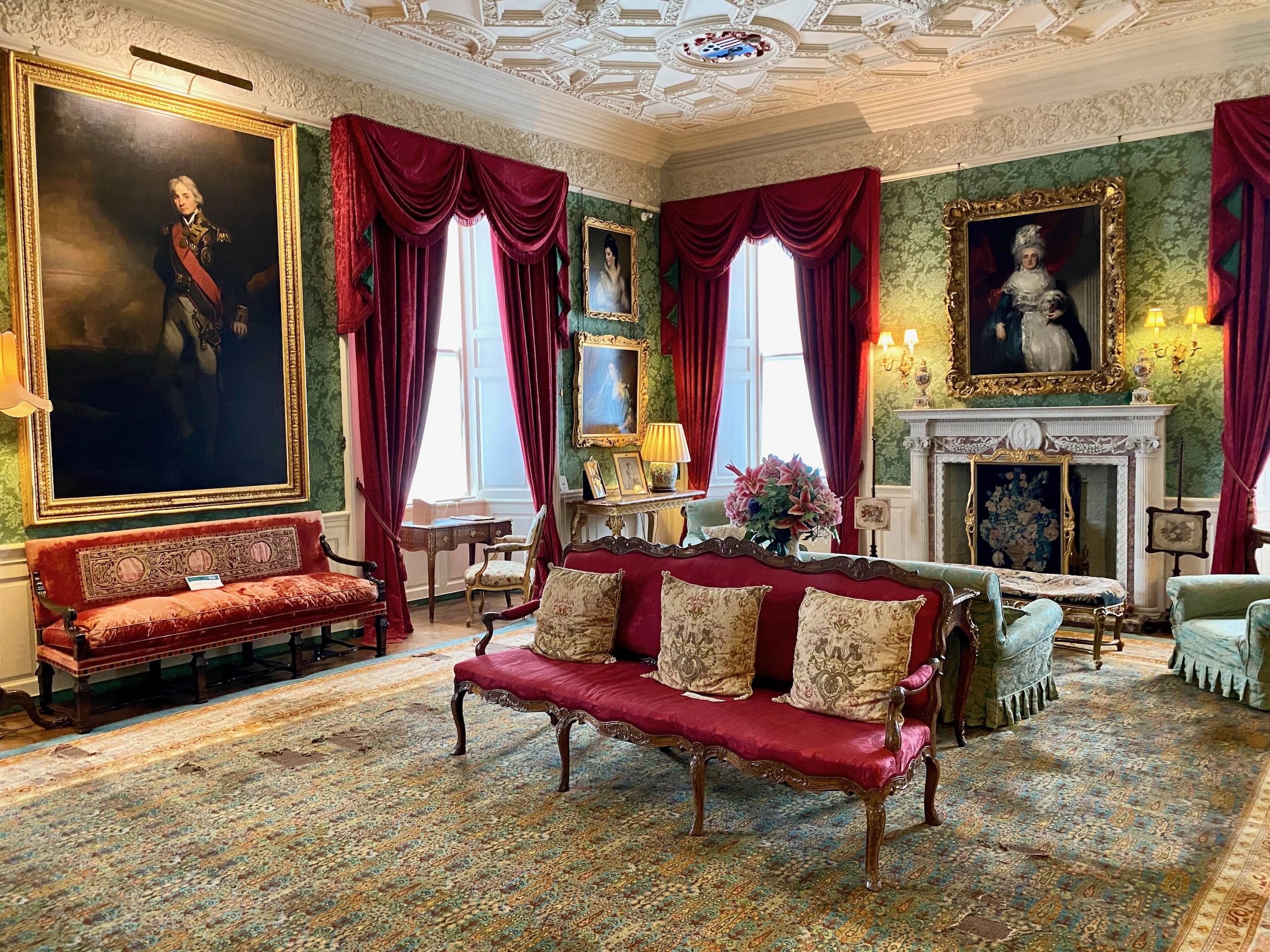
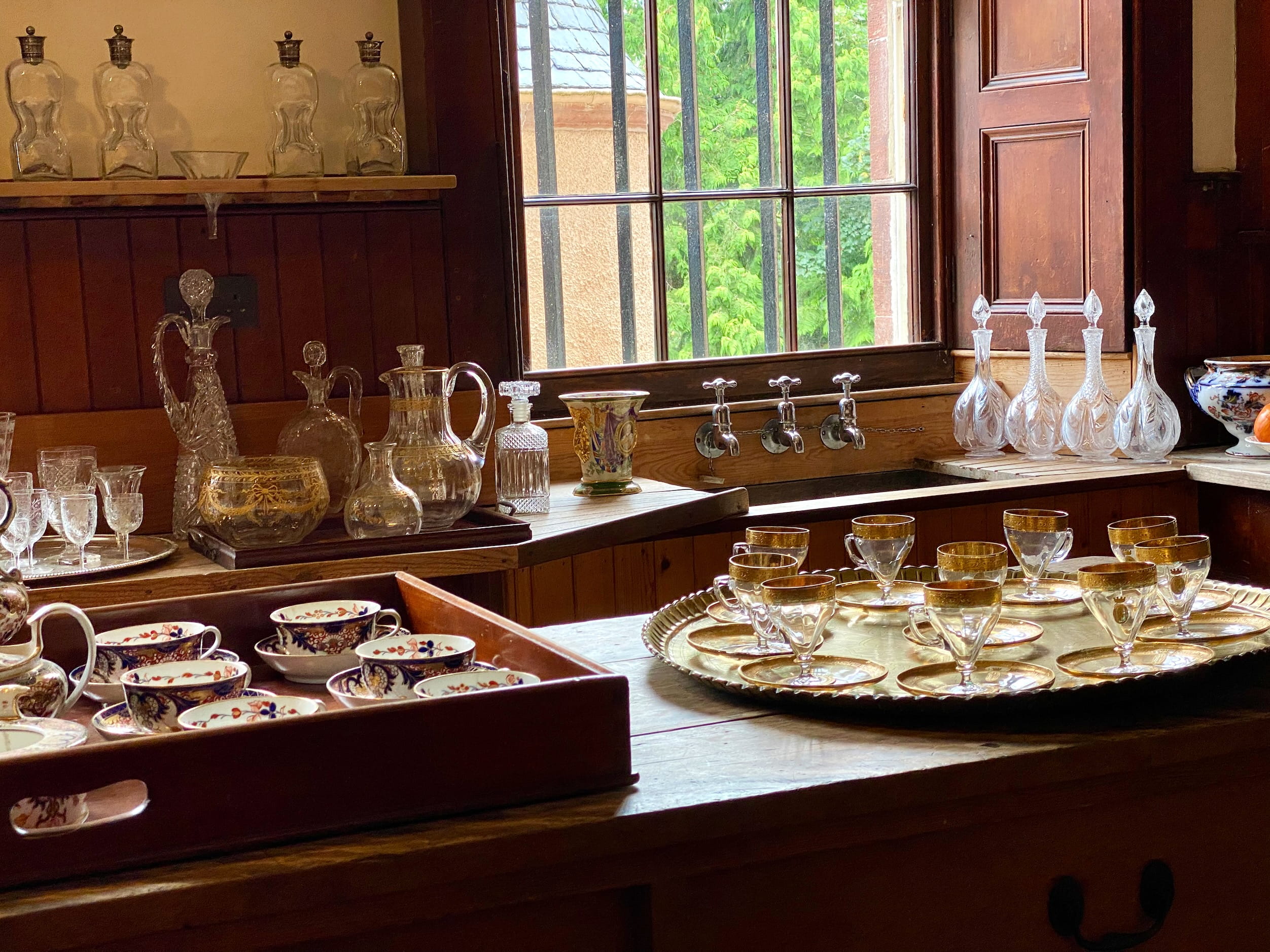
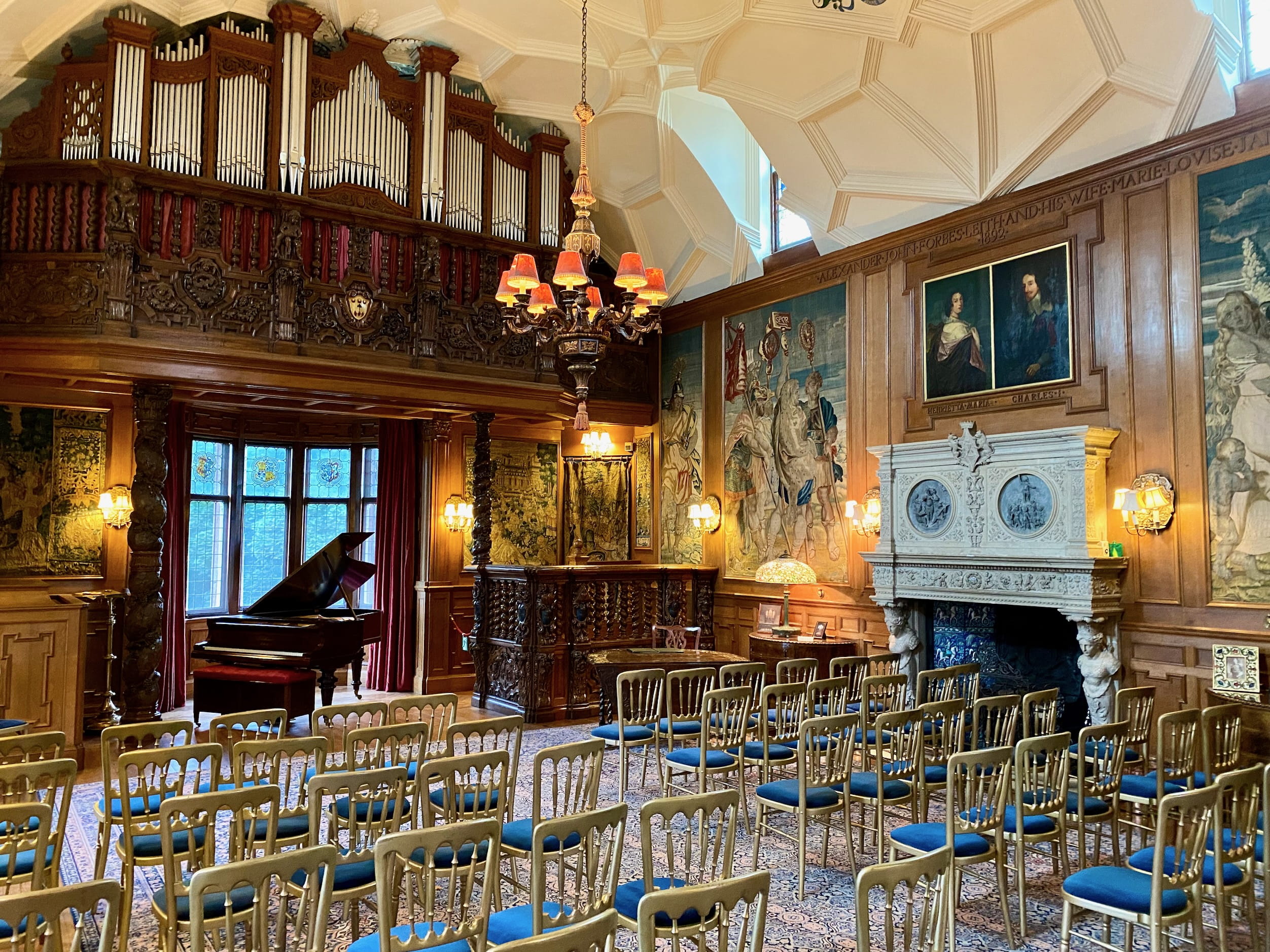
To my surprise, I saw my last name and some kind of coat of arms a bunch of places around the castle. Turns out the key owner (Alexander Forbes-Leith) had “Forbes” on his mom’s side. I’m really not into European genealogy, so I won’t belabor this at all. Instead, I present to you three boars’ heads and “Grace Me Guide,” neither of which gets me really fired up but hey, some things you don’t get to choose.
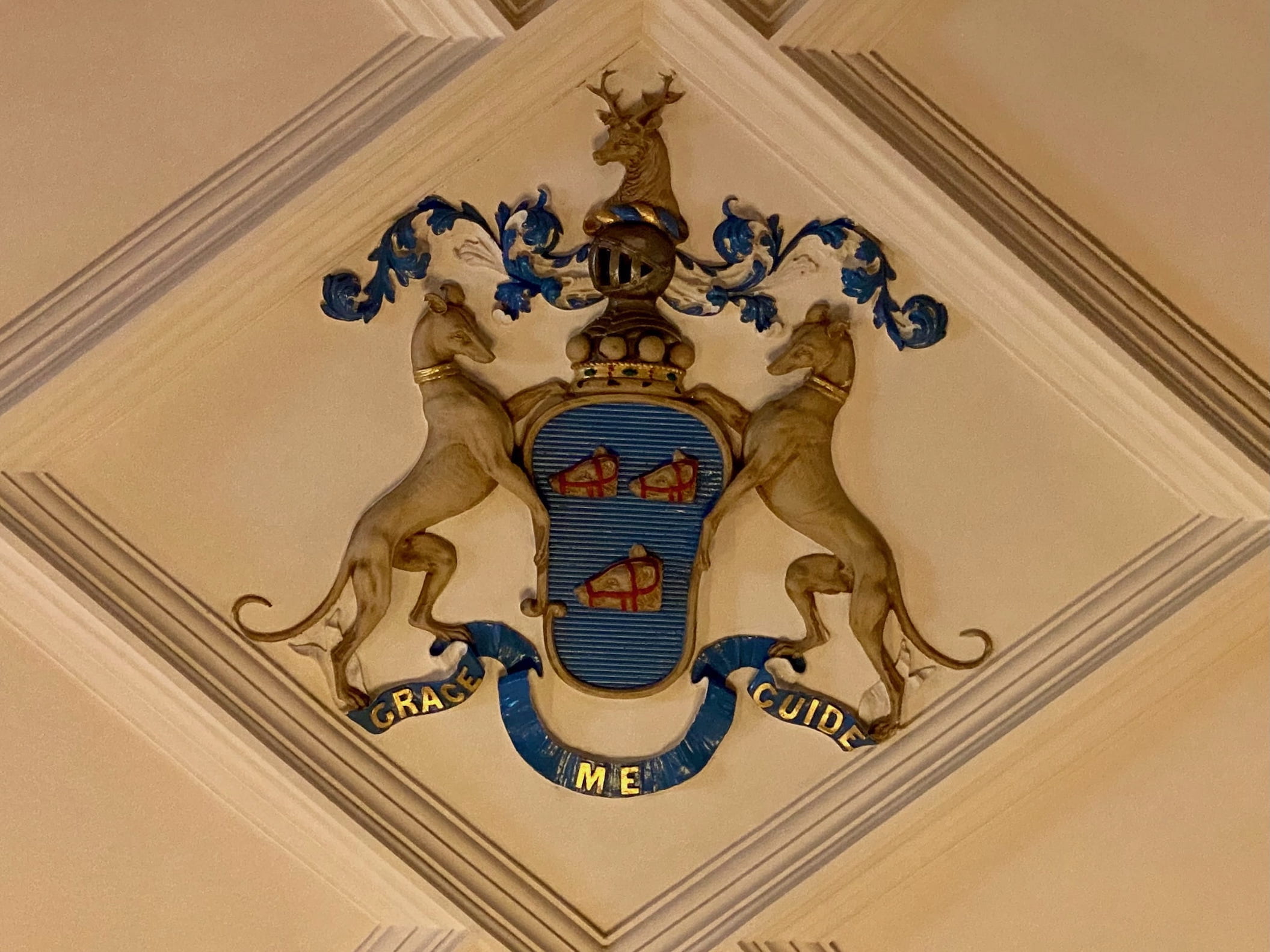
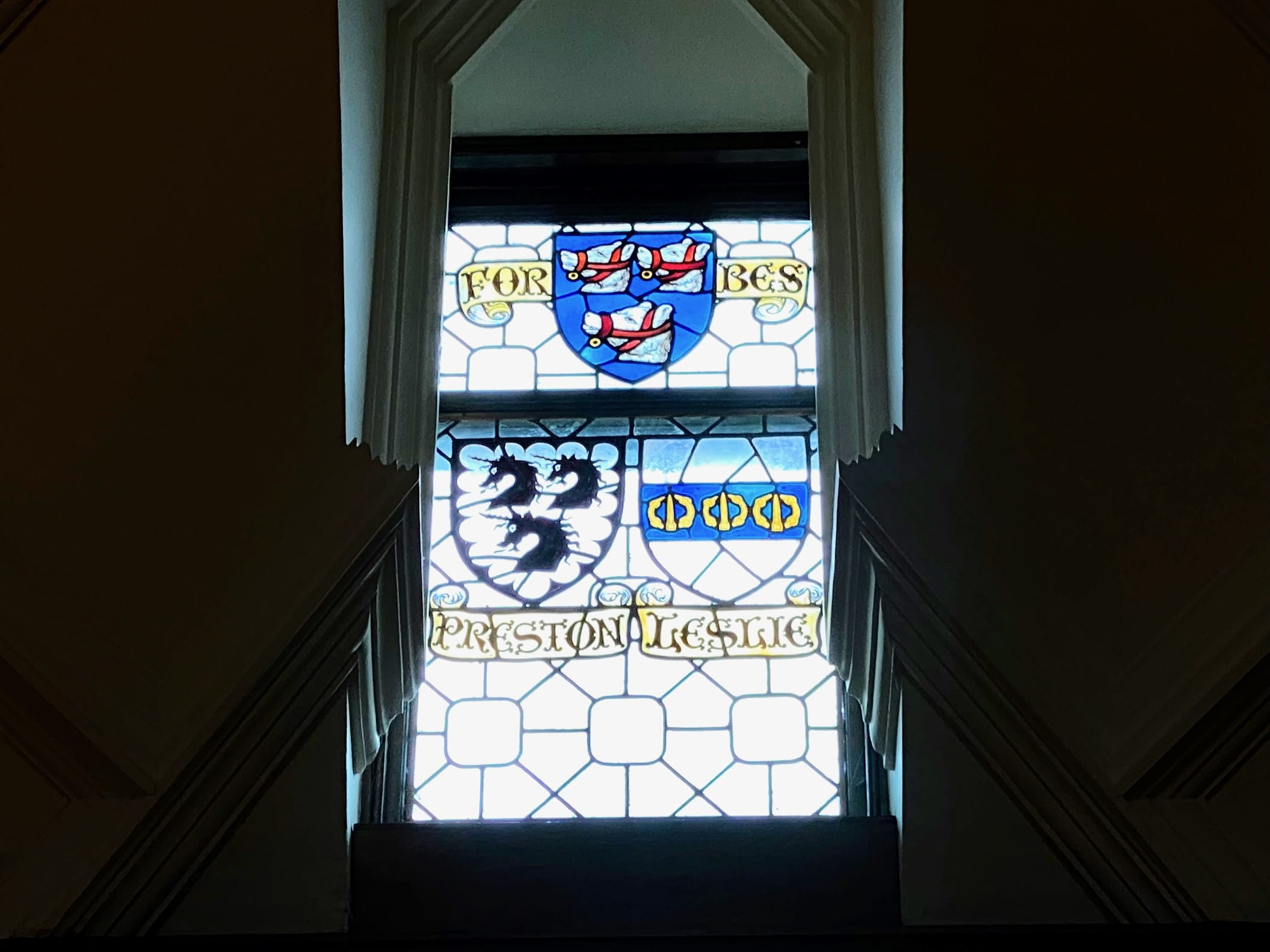
Bagpipes don’t get me fired up either. In case you were wondering.
Elgin Cathedral
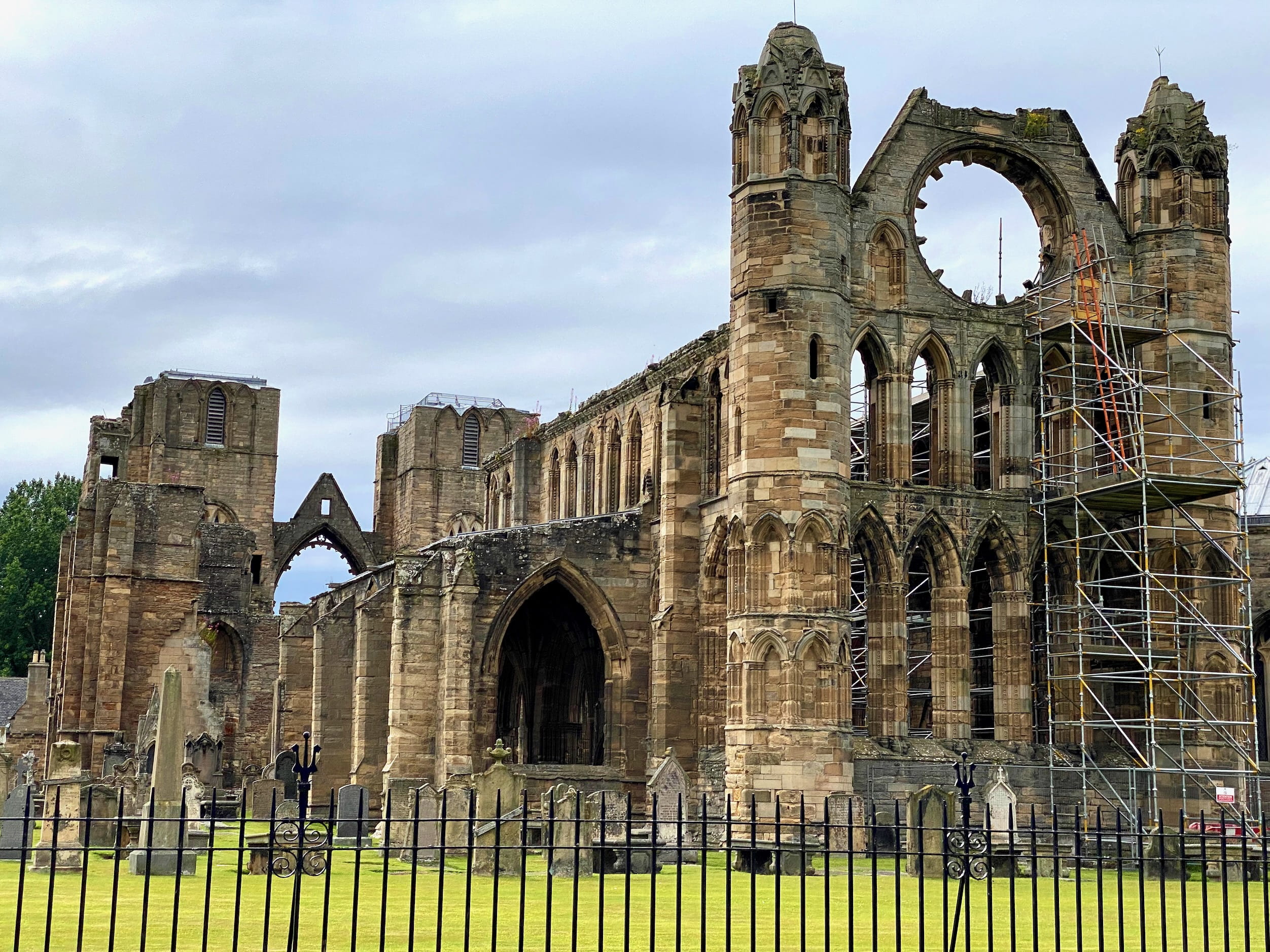
The name reads like somebody hiccuped while saying it. Pretty nice ruins I guess.
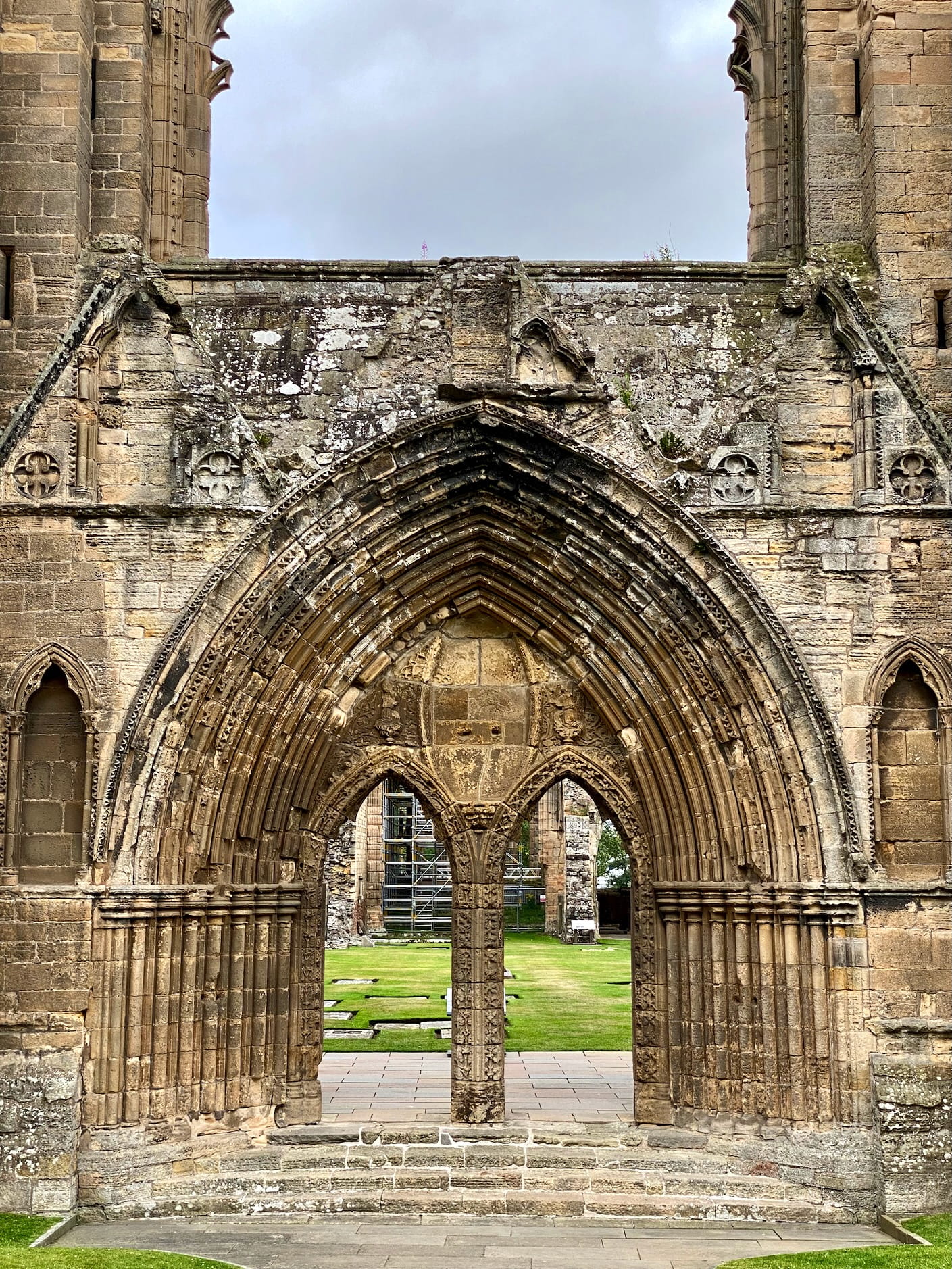
As we arrived—after closing; just to stalk the fences; fine by us; avoid another hefty entrance fee—a group of young English guys popped out of their own vehicle clown car style. I immediately assumed they were doing something everyone around here knew but I only recently learned of: the NC 500.
Interlude on Local Destinations and the NC 500
This is a common occurrence for travel in general: local, often tour-related thing that absolutely everybody knows about, which you have never heard of before coming. Once you learn about it—which you must in order to appropriately banter with people about what, in fact, you are doing all the way out here—you either:
- Incorporate it into your travel plans
- Sheepishly repeat you’re not doing it and wave your hands why
Another example, pulled from where I’m writing this: when you travel in Vietnam, the first question you probably ask other travelers after pleasantries is whether they’re going north-to-south or south-to-north. When you look at Vietnam’s shape this becomes obvious, but if you haven’t bothered to do that before and briefly ponder travel logistics, you wouldn’t know it. A more local example, as I mentioned recently, is in Hanoi—Vietnam’s capital—there are three short trips everyone takes, or at least considers taking, from the northern city hub (these are: Sapa, Ninh Binh, Halong Bay). If you haven’t been to Hanoi or planned a trip there in detail, there’s absolutely no reason you would know those things, but if you show up and haven’t heard of them, you will look like a complete fool.
It’s a perfect example of how annoying cultural norms are when traveling. You learn all of these new things each place you go, which grants you membership to the backpackers’ club. These local facts are interesting because they are extremely relevant to your immediate life situation. (Or, at the very least, they’re quite helpful as small talk fodder to survive a painful chat with someone who, you realize after twenty seconds, you don’t want to talk to, but are stuck next to for thirty minutes.) But then, much like college students asking “what classes are you taking?” once you’re no longer traveling, precisely zero people in your life want to hear about your trip on the level of detail of these local to-dos. I know this because I certainly don’t.05
The NC 500 is the “North Coast 500,” which is a 500-ish mile (yes, they use miles here) drive around Scotland’s north coast. This one we didn’t feel guilty avoiding because we were already doing a lot in two weeks here without crawling our way around the whole bloody06 country’s perimeter.
Footnotes
Scotland helpfully sells some tourist passes that get you into a combo of castles which exactly excludes the ones you’d actually want to see. ↩︎
(1) Edinburgh Castle is a city landmark in the capital, has great views, and doubles as a set of museums. (2) Balmoral turns out to be famous due to its royal inhabitants, and has a huge and beautiful grounds, and high budget tourist info, (3) Fyvie is decadently maintained and you can actually tour the interior, which is setup as if people a long time ago were living in it. (Most castles you can’t see much of inside.) ↩︎
OK, house, enormous castle, you get it. ↩︎
They kept referencing Albert’s great design taste, but when I waded through all the bonus dialog in the tour guide app to see what it actually was that he contributed, it turned out he hired an architect and, at one point, said, “make the windows bigger.” Bravo, Albert. ↩︎
In fact, I’m not sure why on earth you’re reading this. ↩︎
One thing I’ve never gotten a bead on is precisely how bad of a curse word “bloody” is. I figure if child Ron Weasley can use it I can too. ↩︎